
Foreword
We are pleased to present the fiftieth anniversary report of the Harvard Law School Class of 1975. The report will bring you up-to-date on the lives of your classmates at Harvard Law School.
We want to thank all who responded to the questionnaire. We hope you find the Red Book useful in connecting with classmates and kindling fond memories of your times together.
Sincerely,
Harvard Law School Alumni Center
In Memoriam
We pay tribute and hold dear the memories of our classmates who have passed away. Although they are no longer with us, their enduring presence will forever hold a cherished place in our hearts and within the Harvard Law School community.
Records of the Class
Click the button below to view your password-protected class records – a collection of your classmates’ contact information and their stories – about life, career, family, hobbies, and more.
Please note: Passwords are case-sensitive. Also, this PDF is designed for reading only and cannot be printed.
Class Photo Album
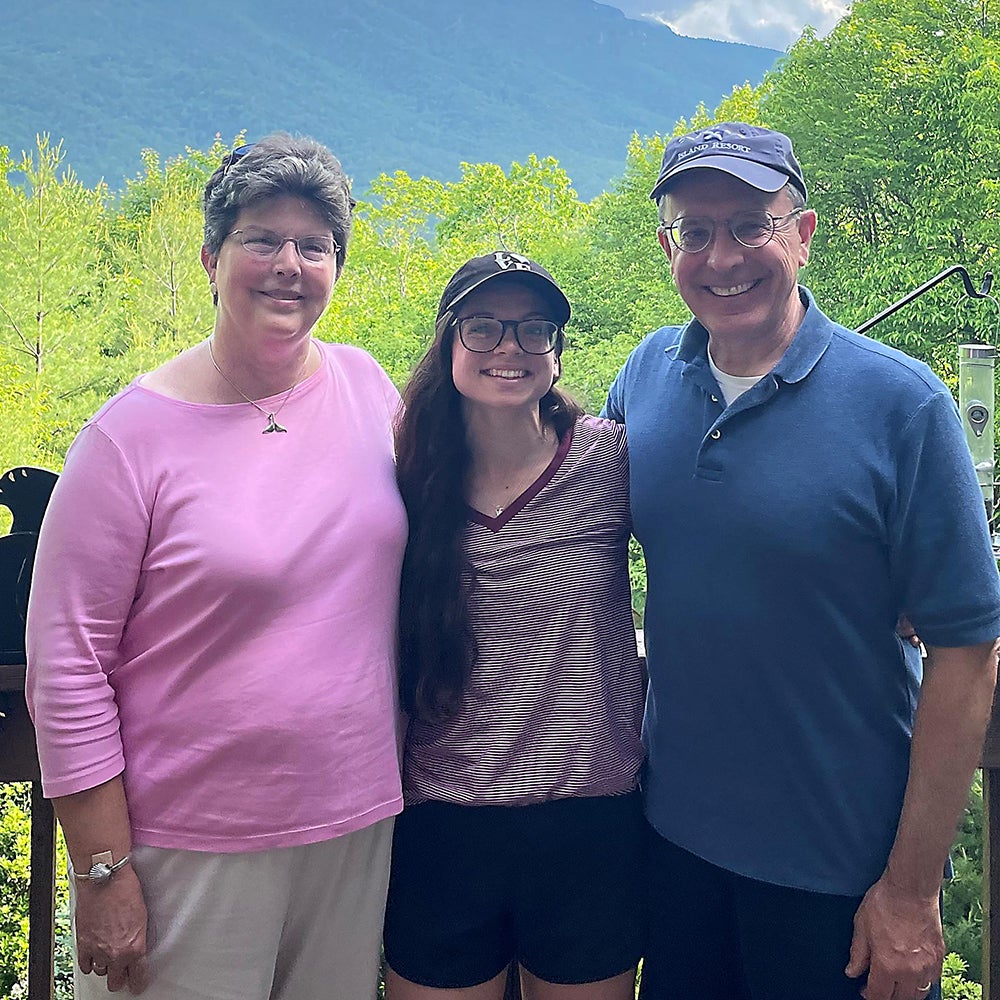
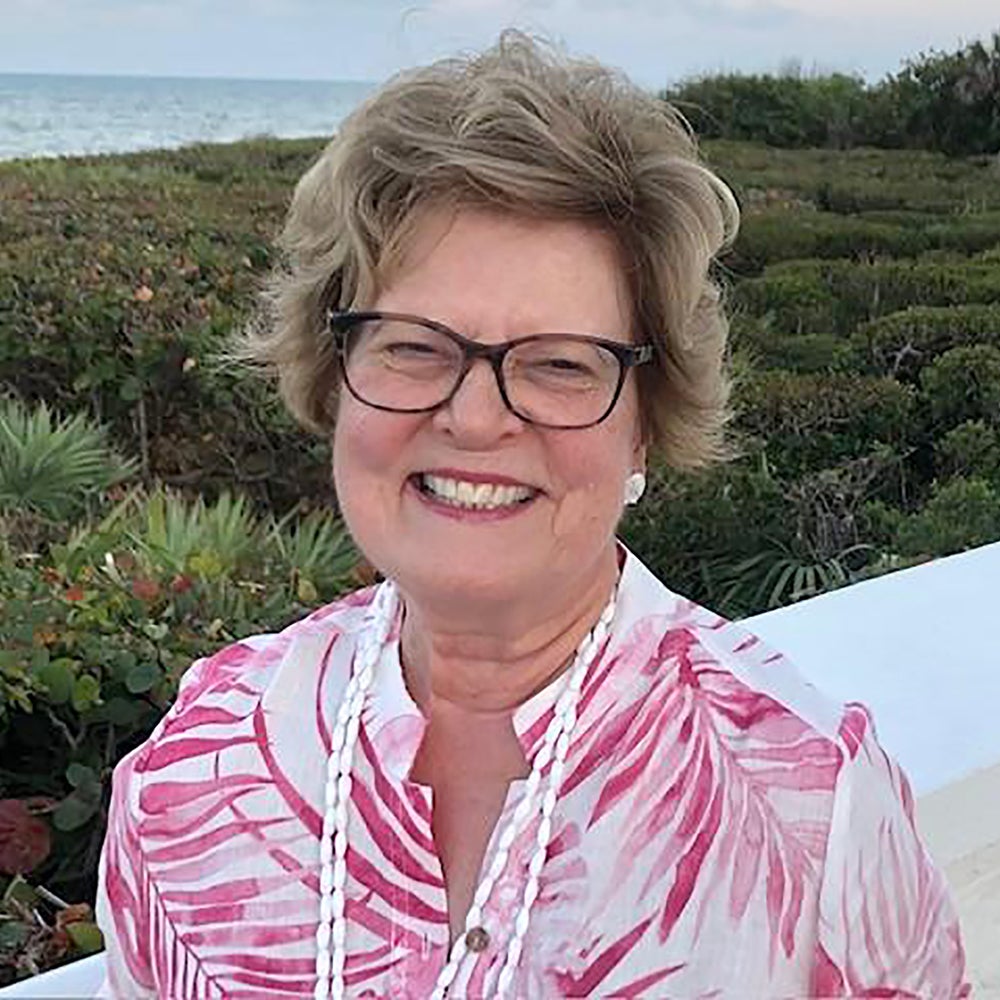
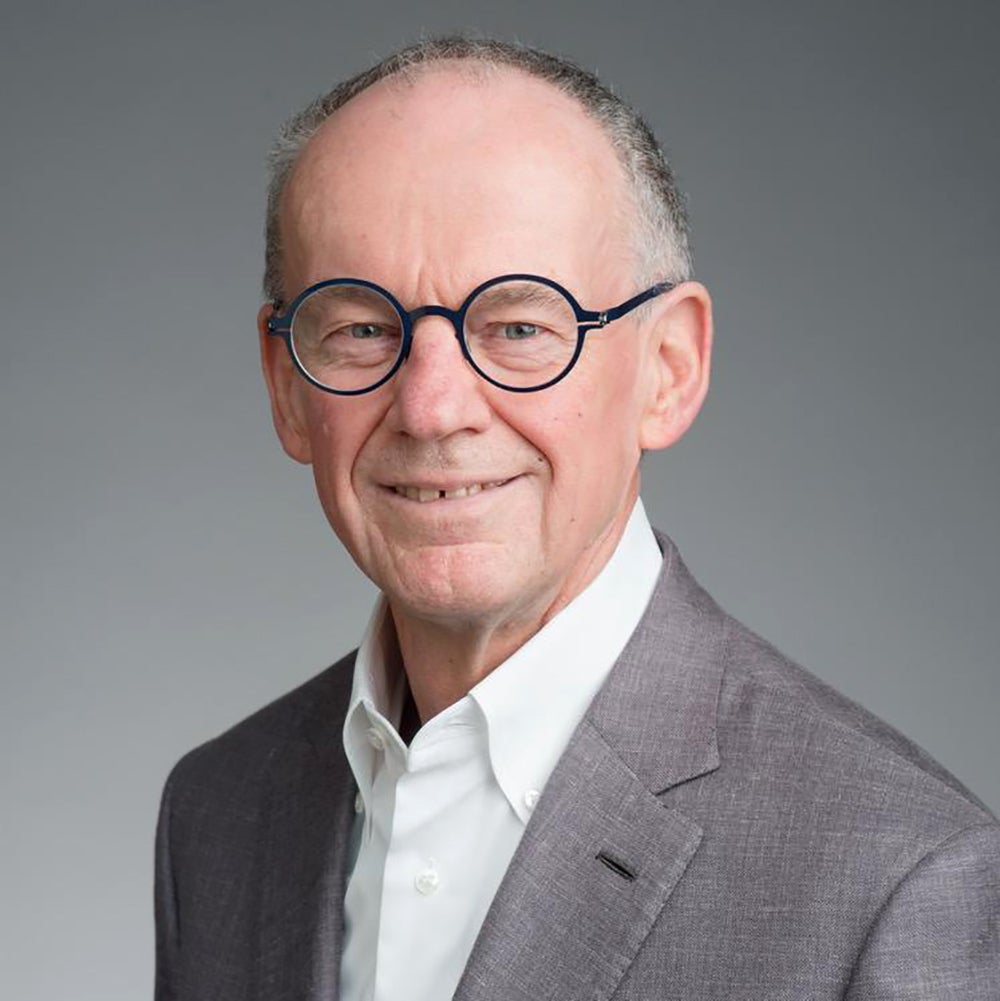
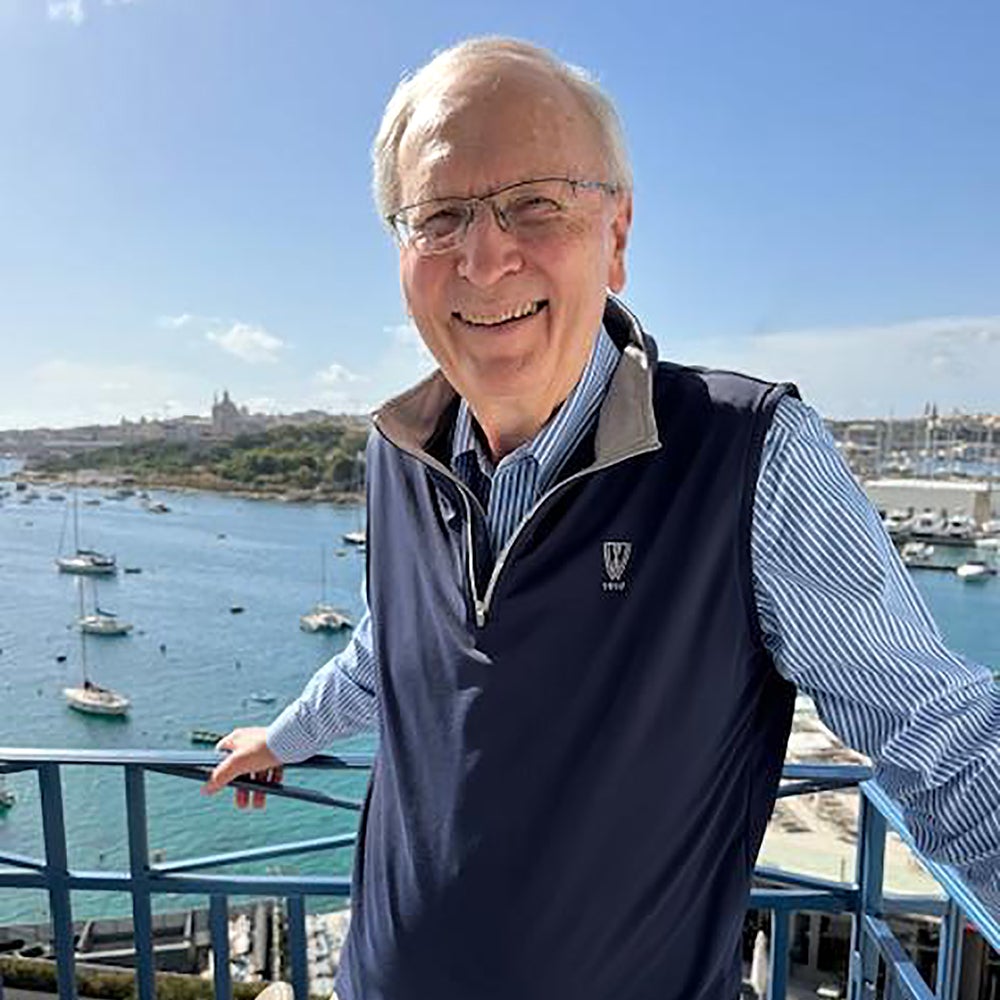
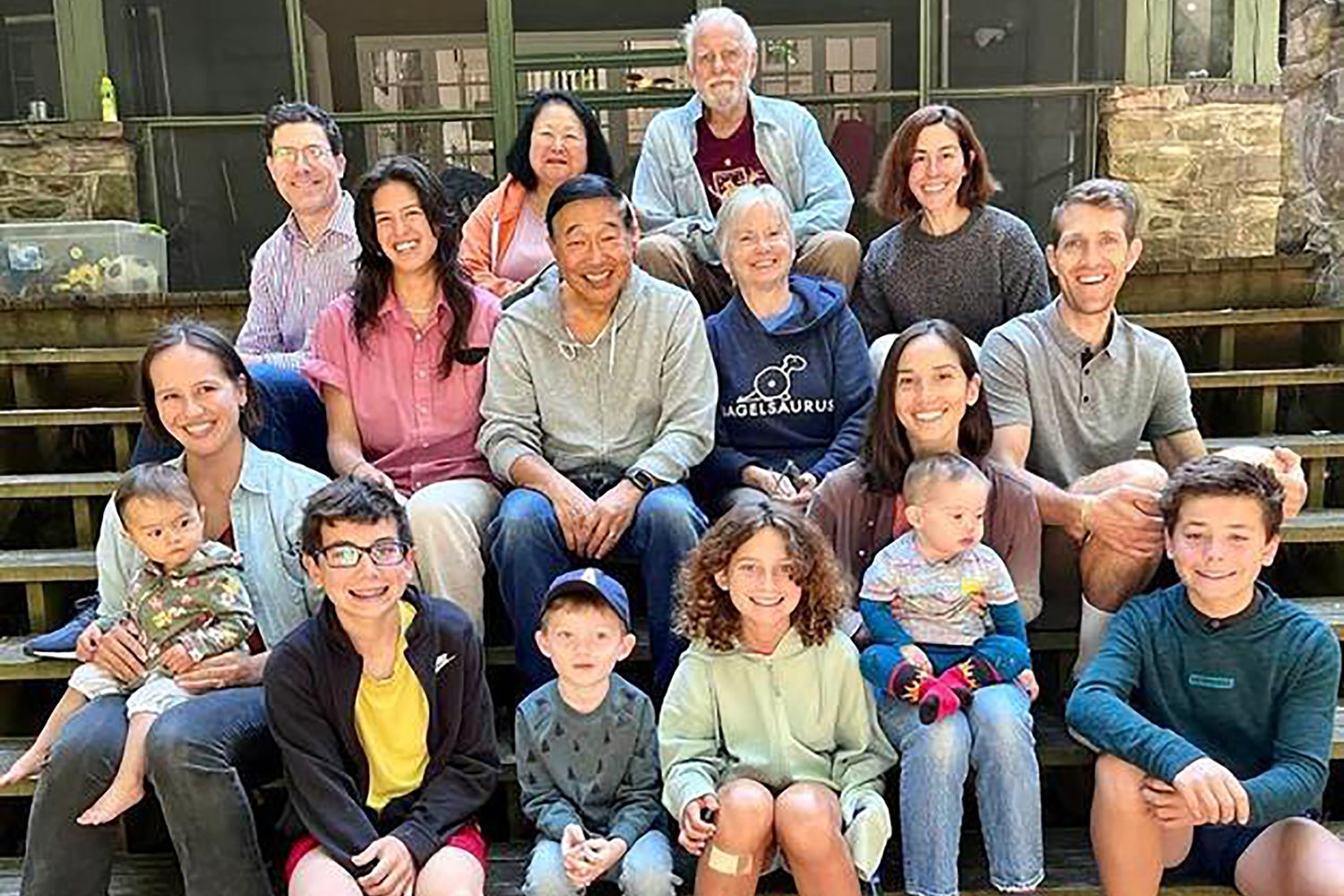
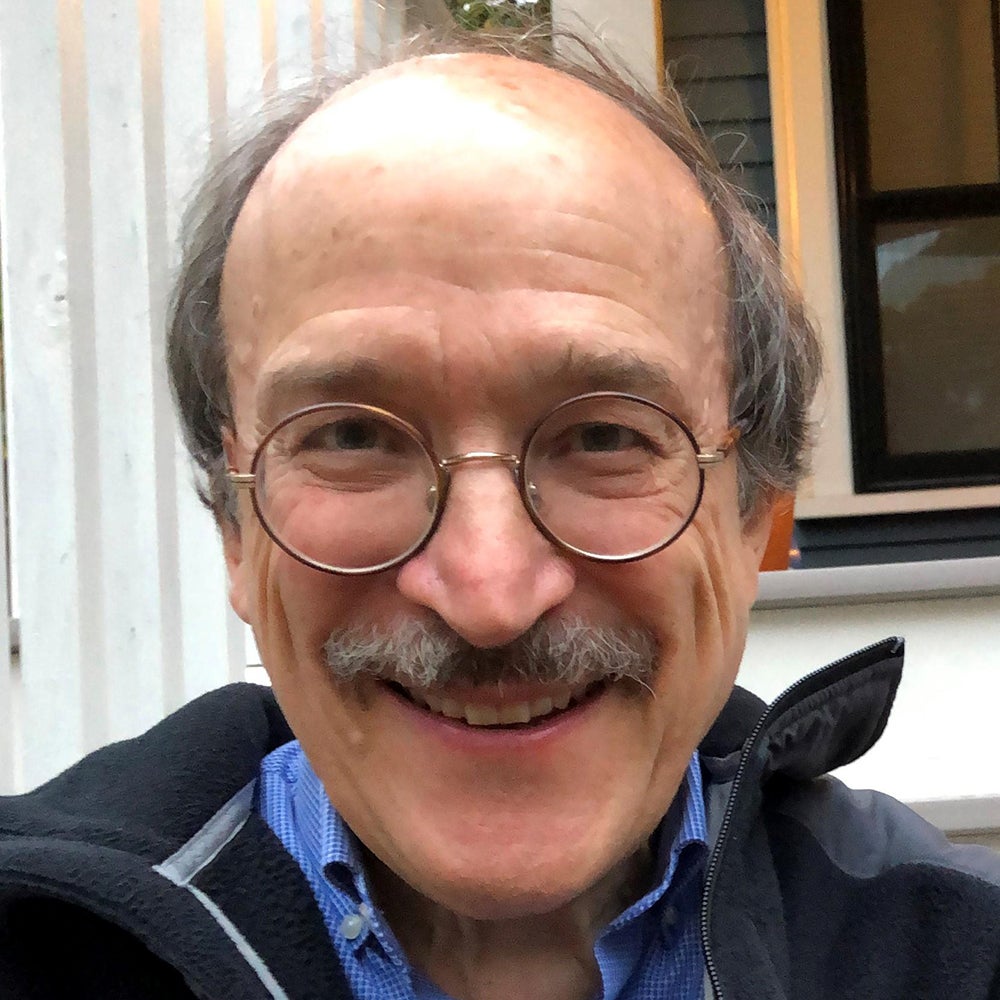
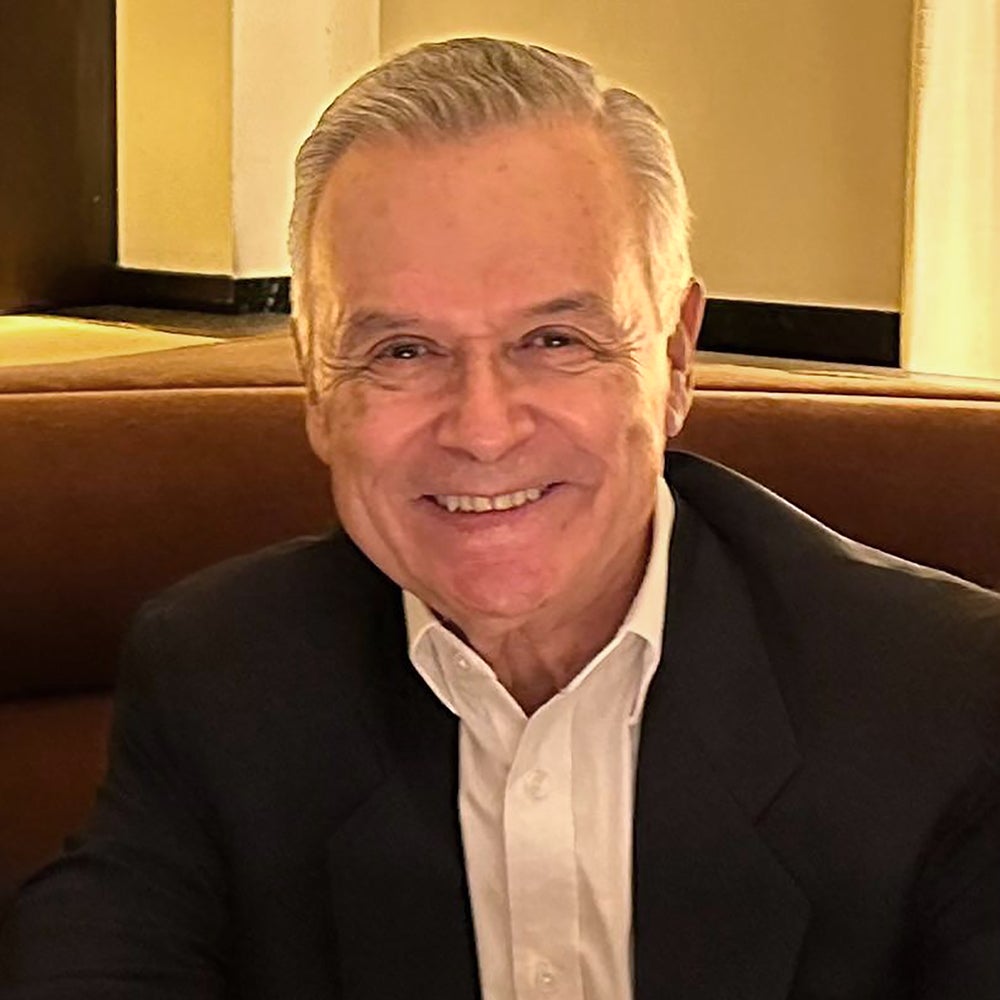
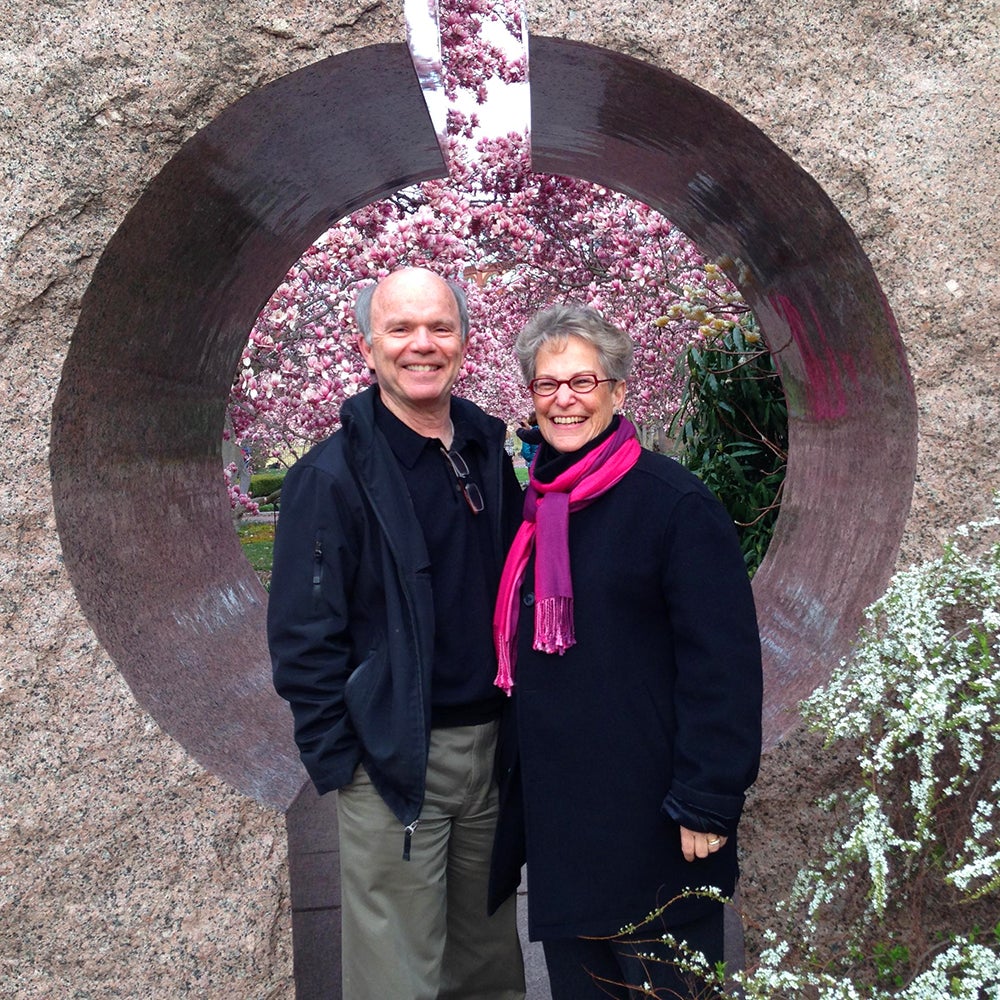
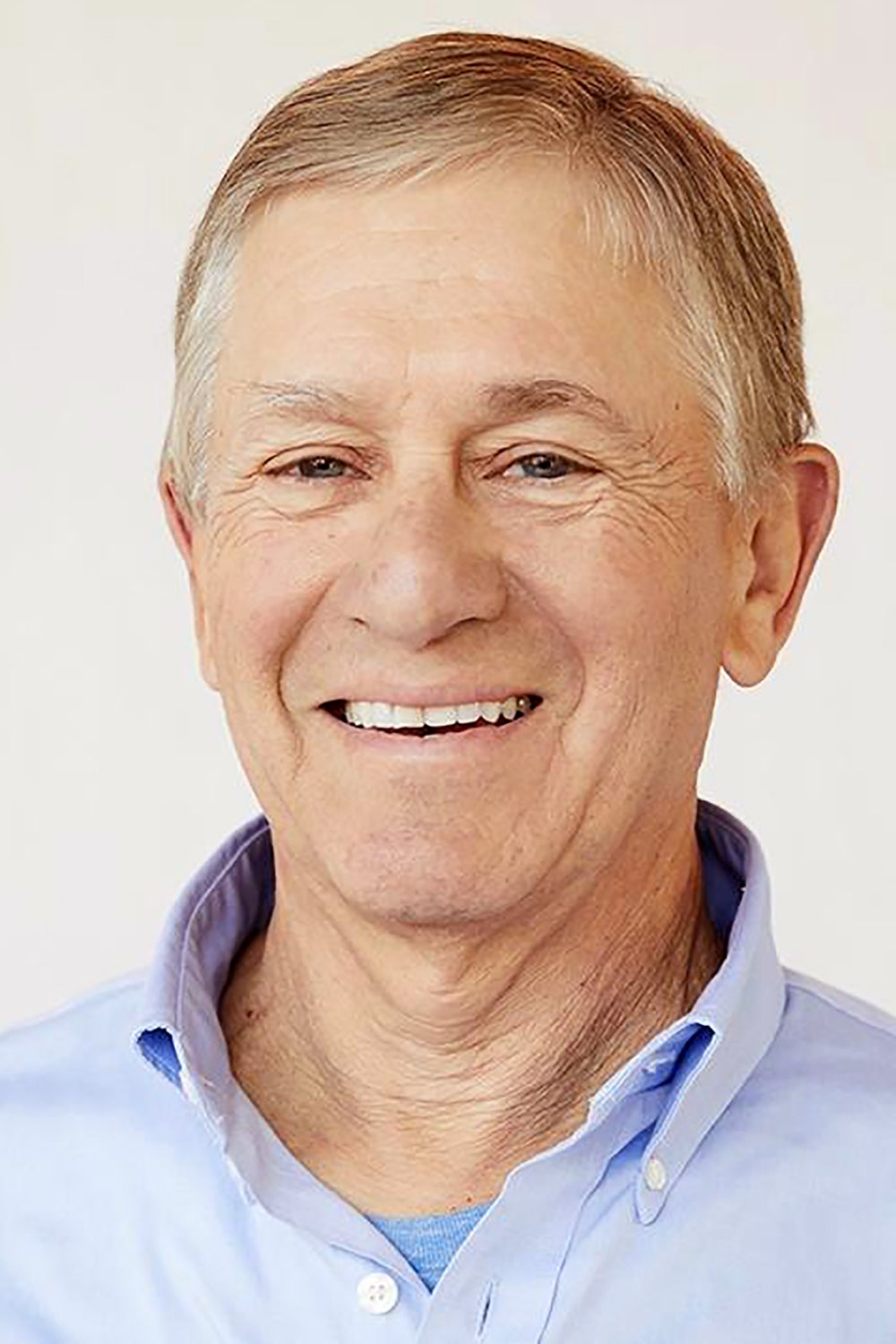
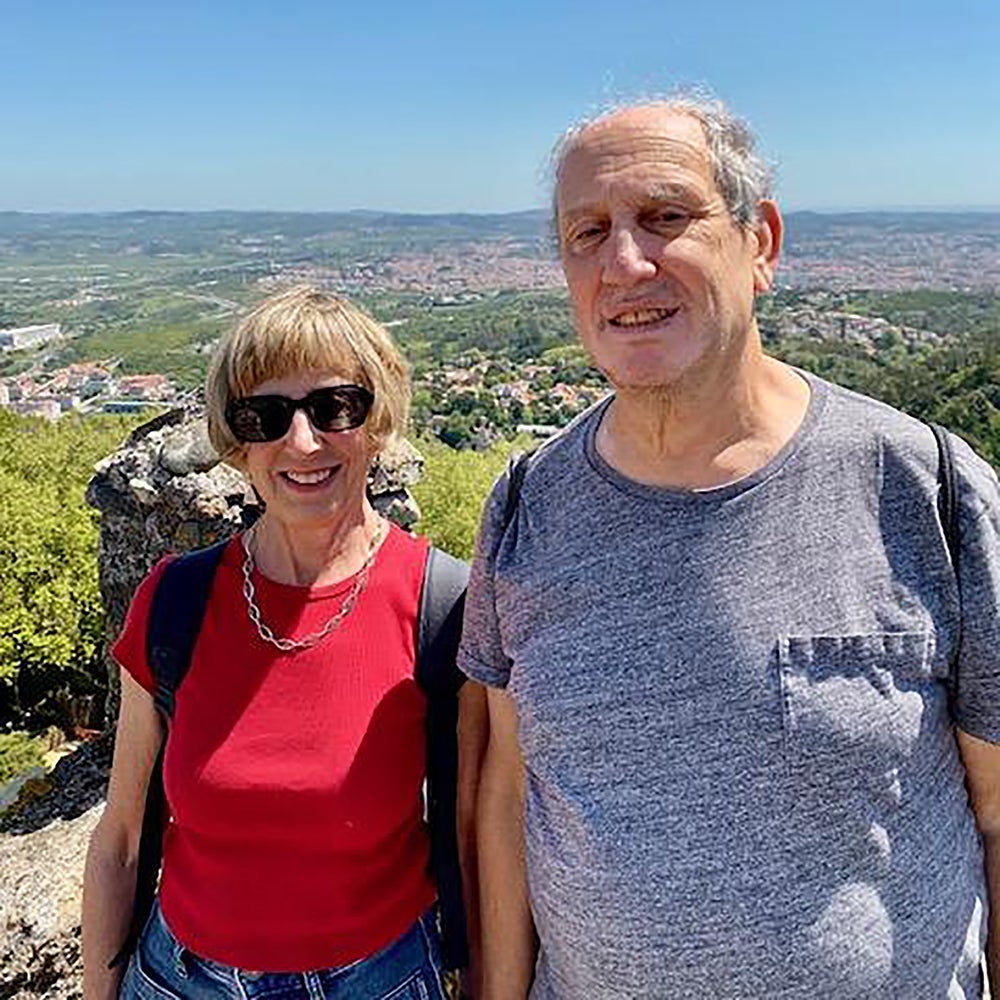
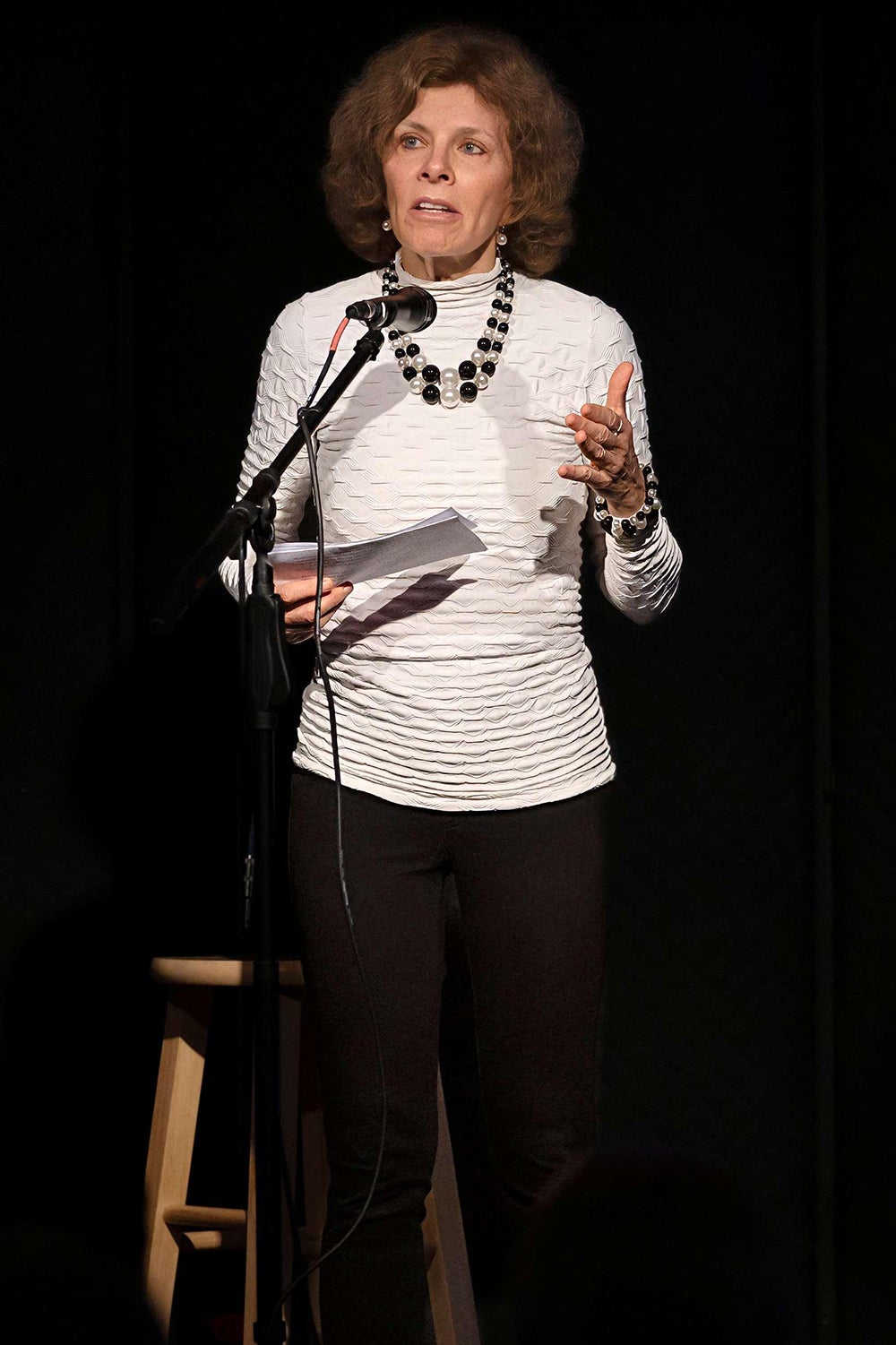
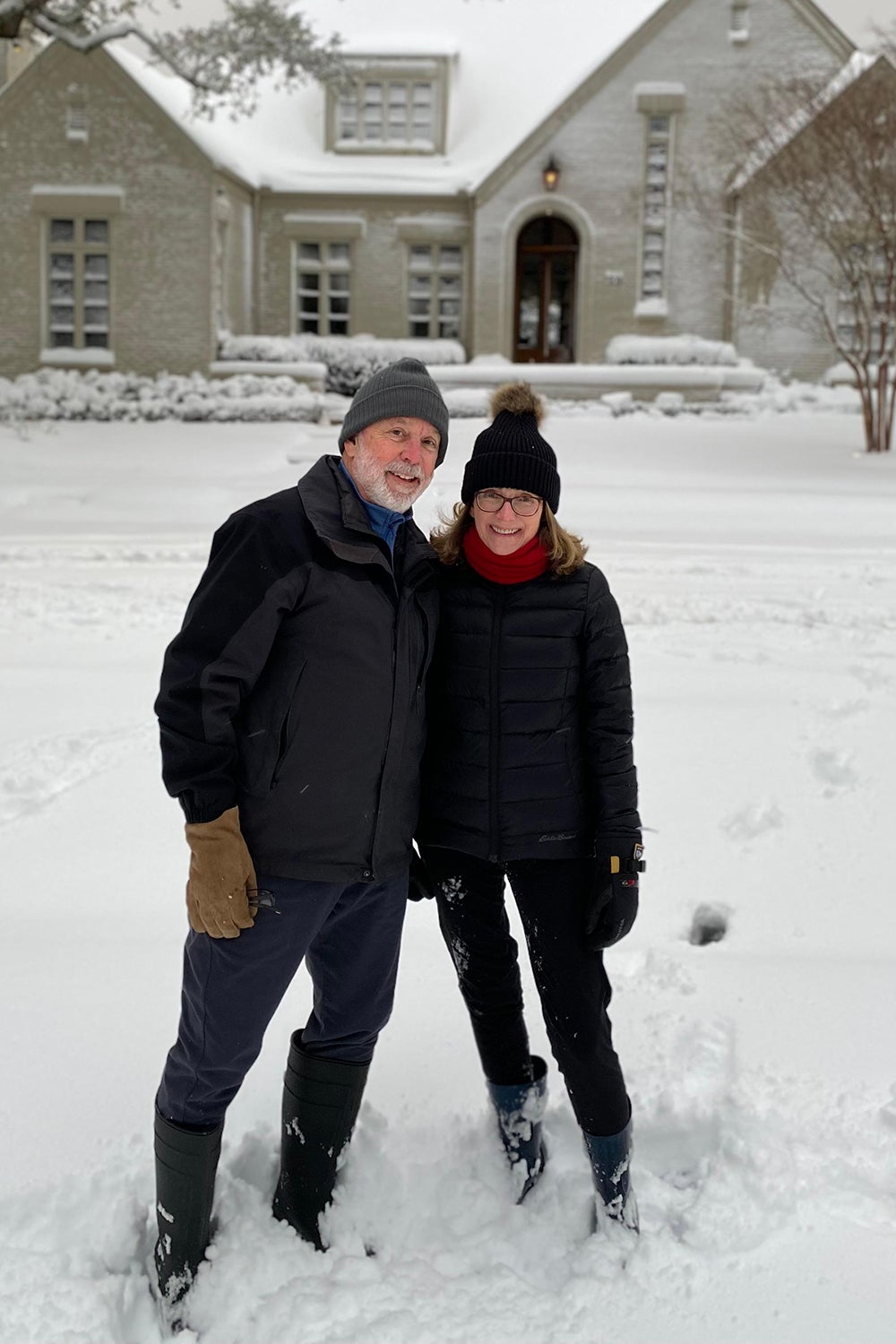
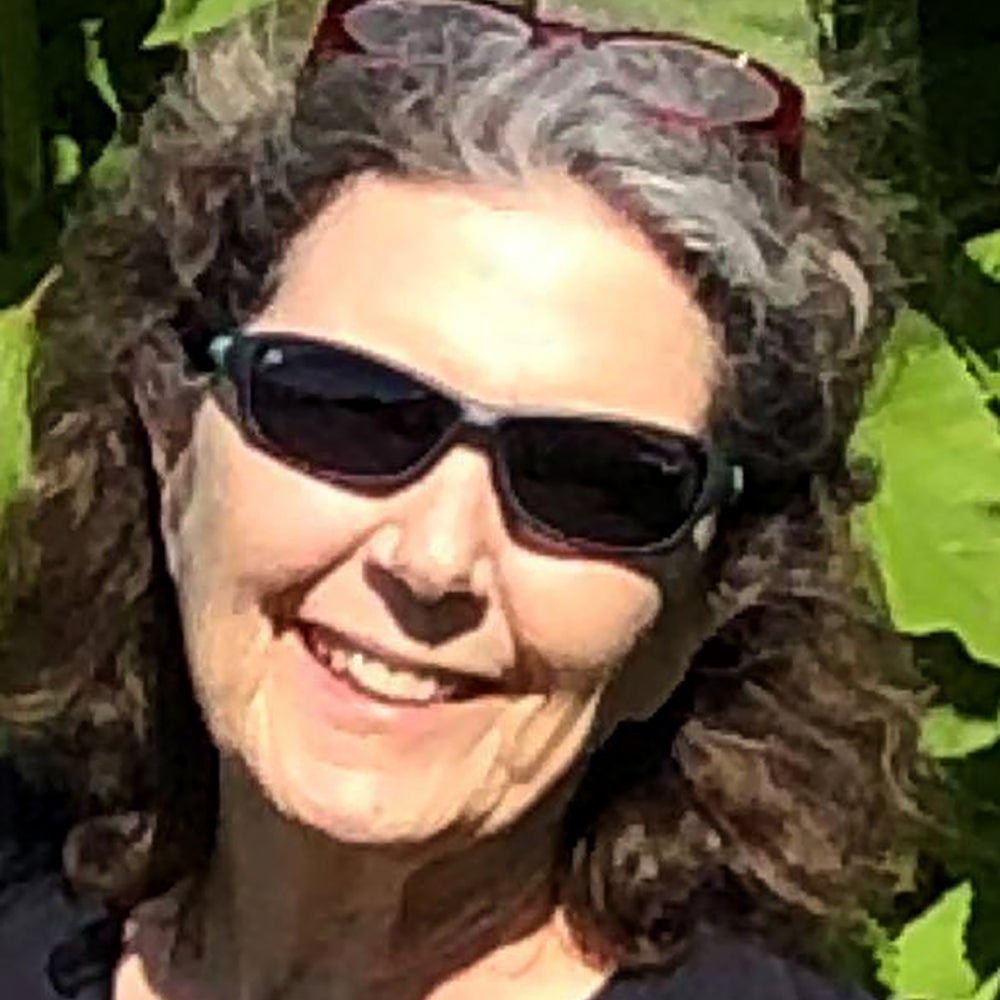
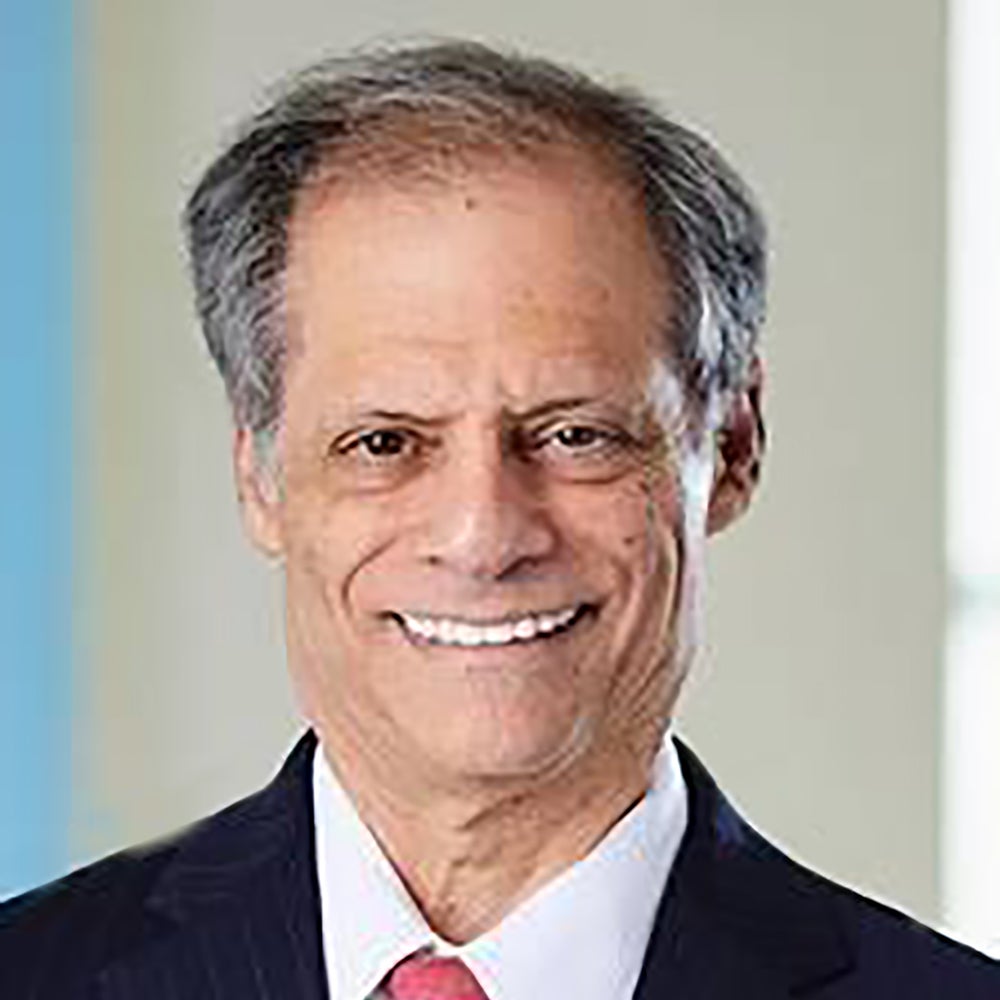
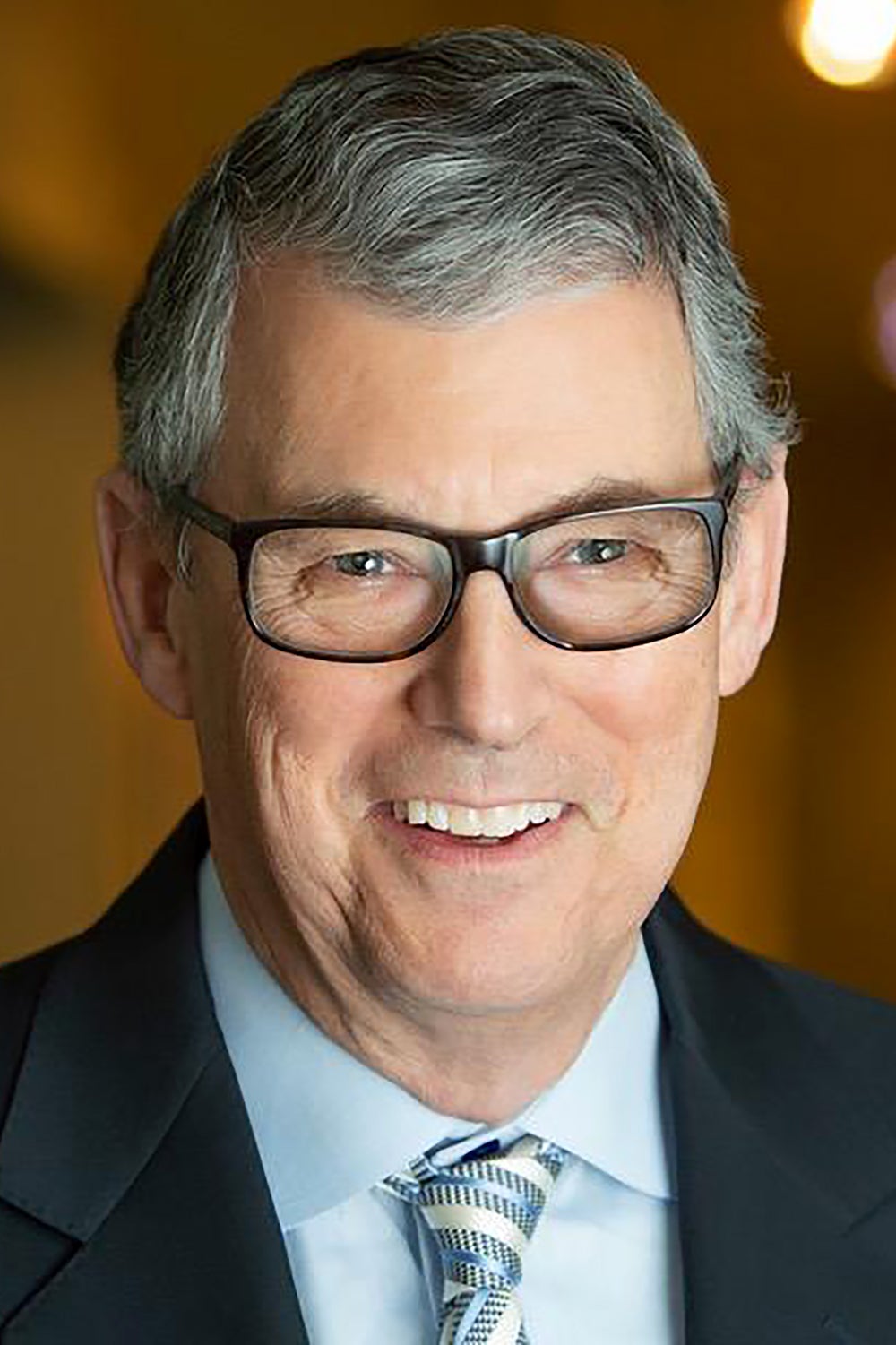
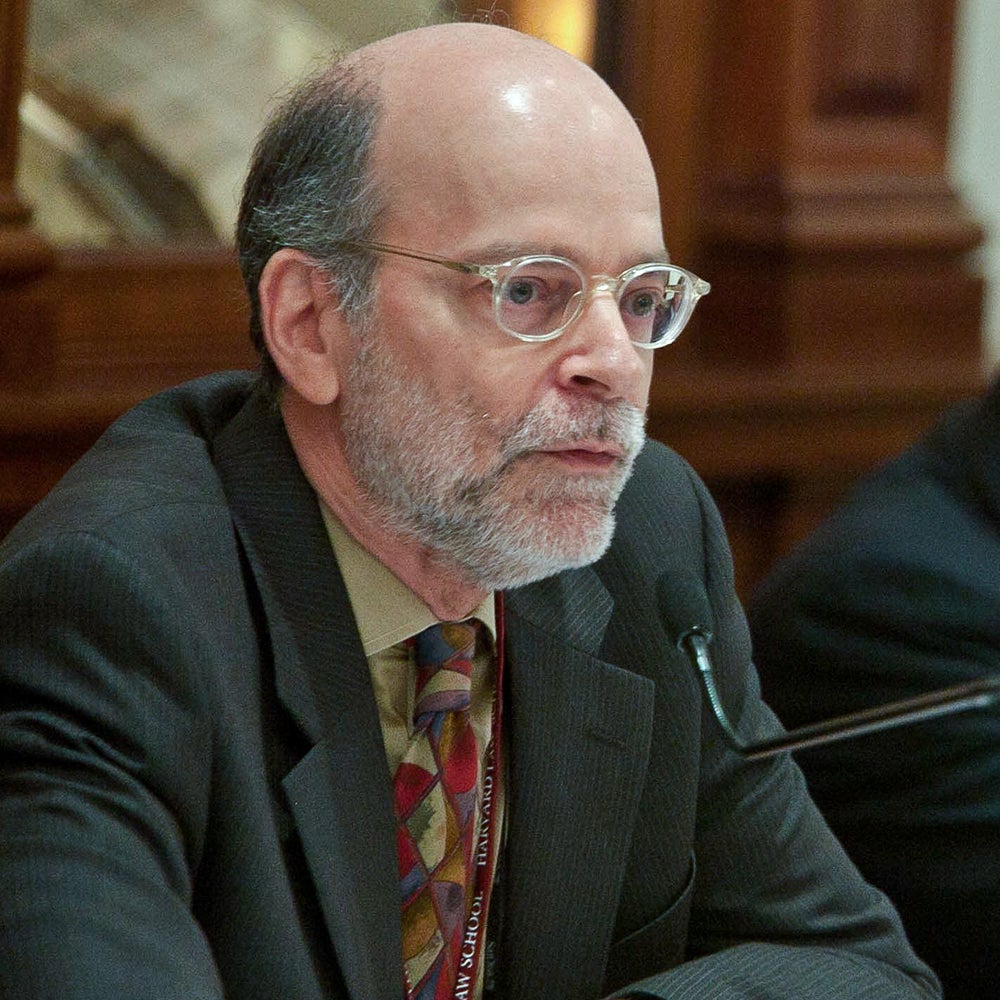
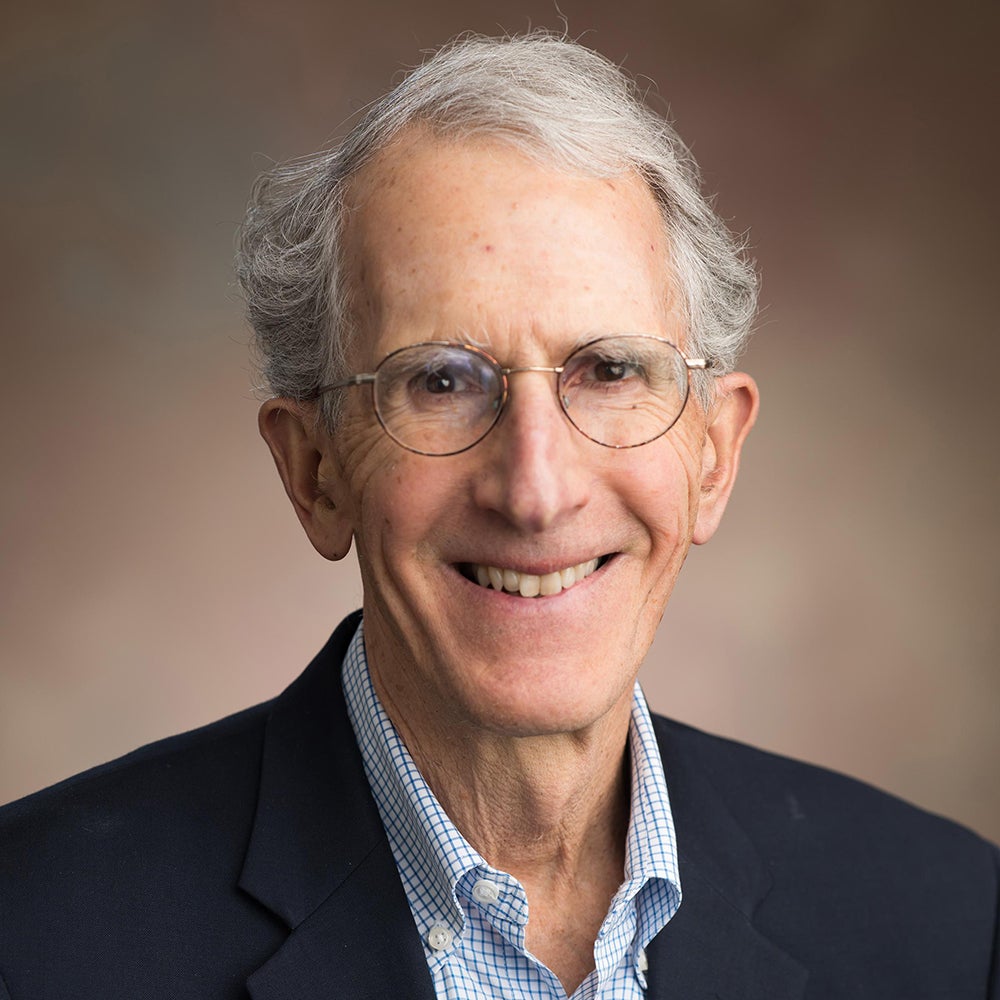
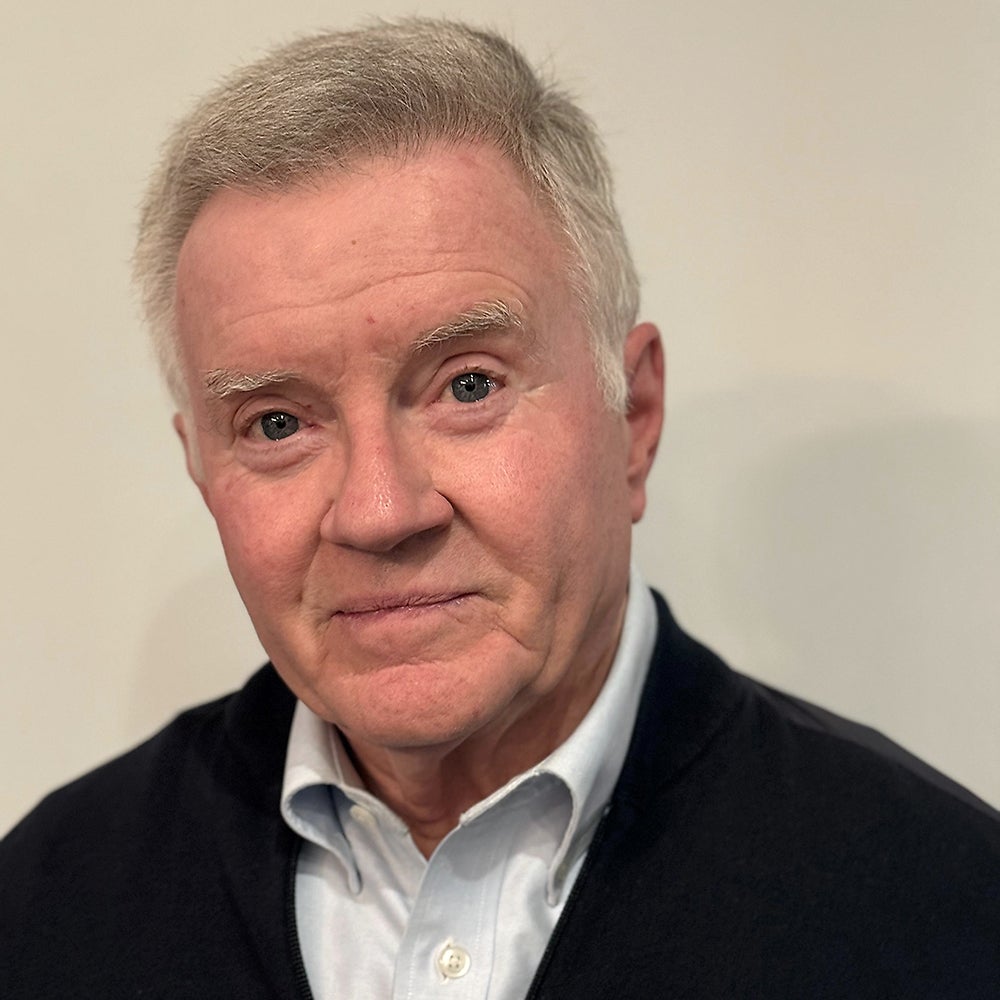
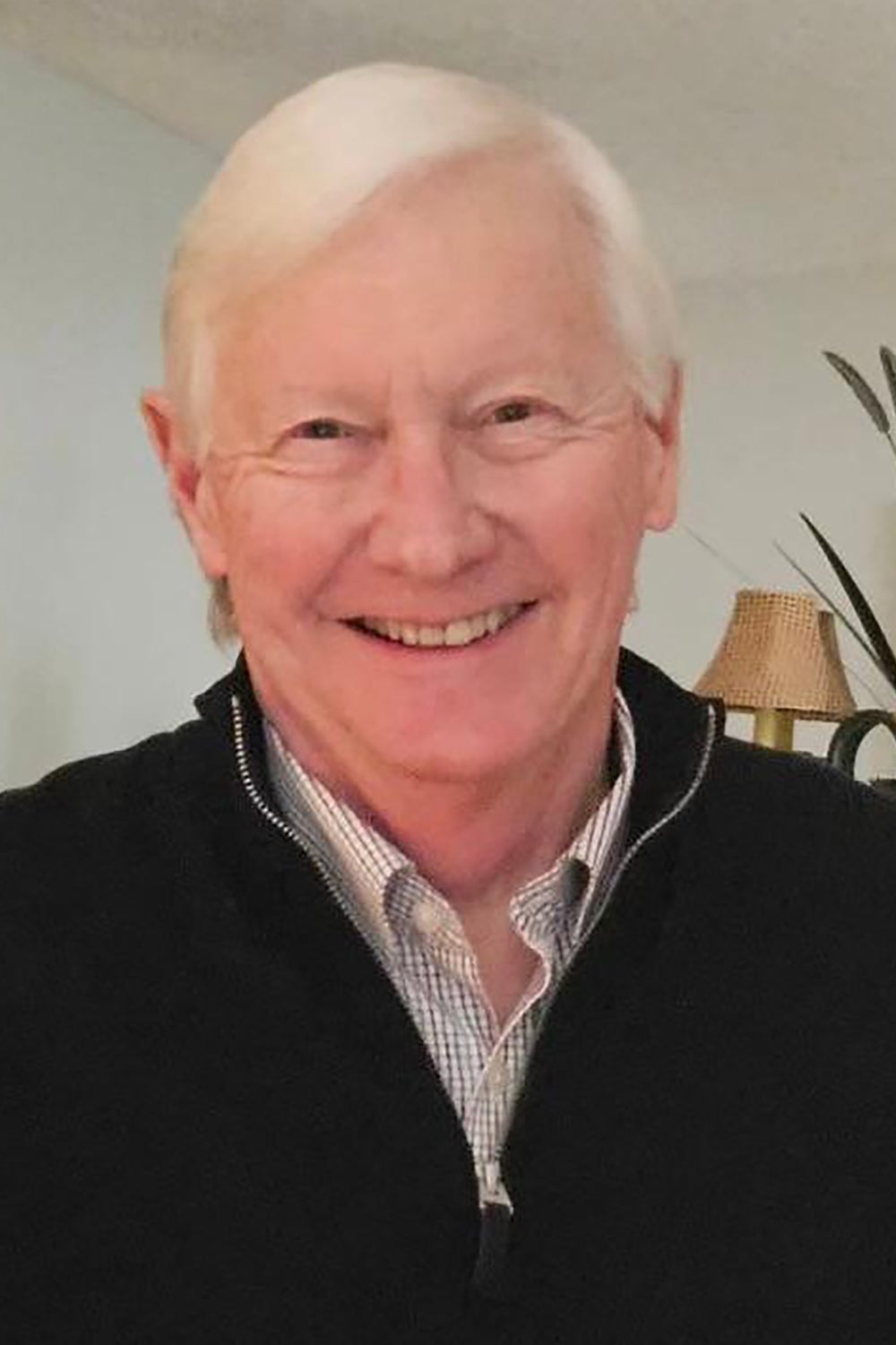
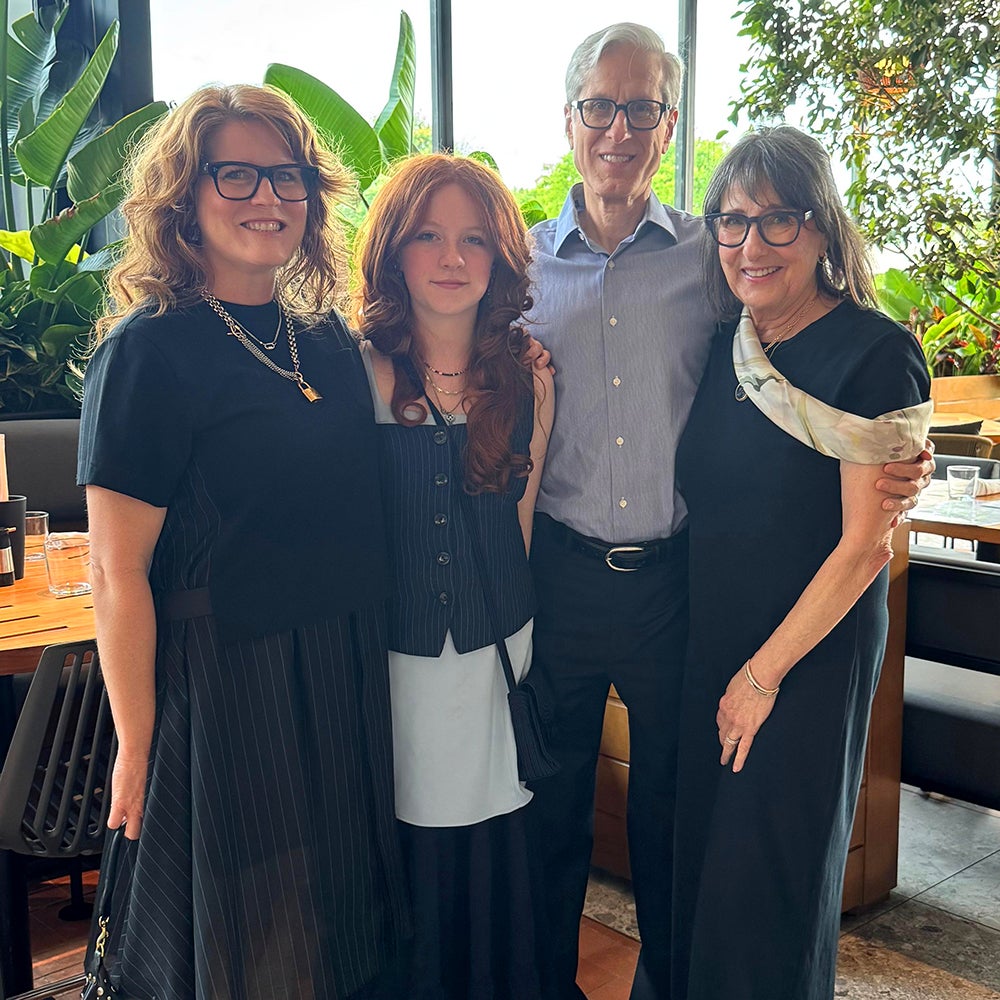
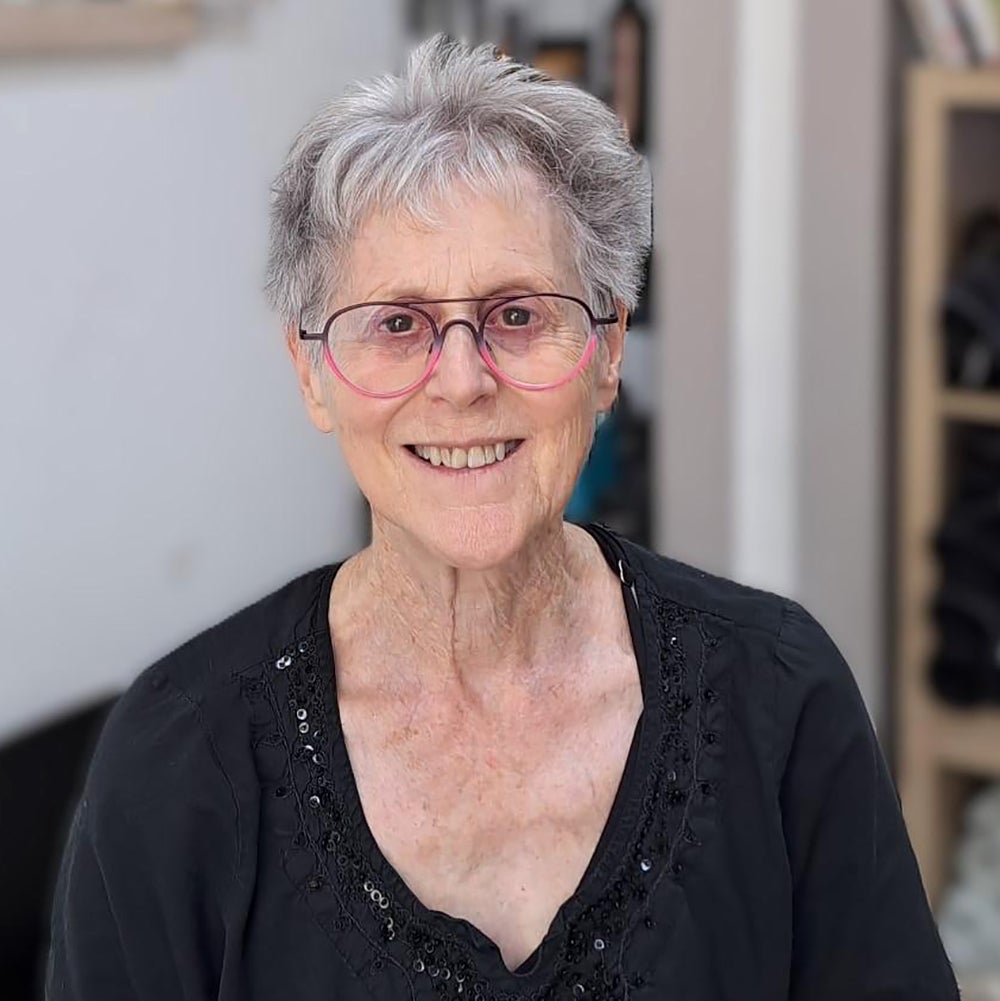
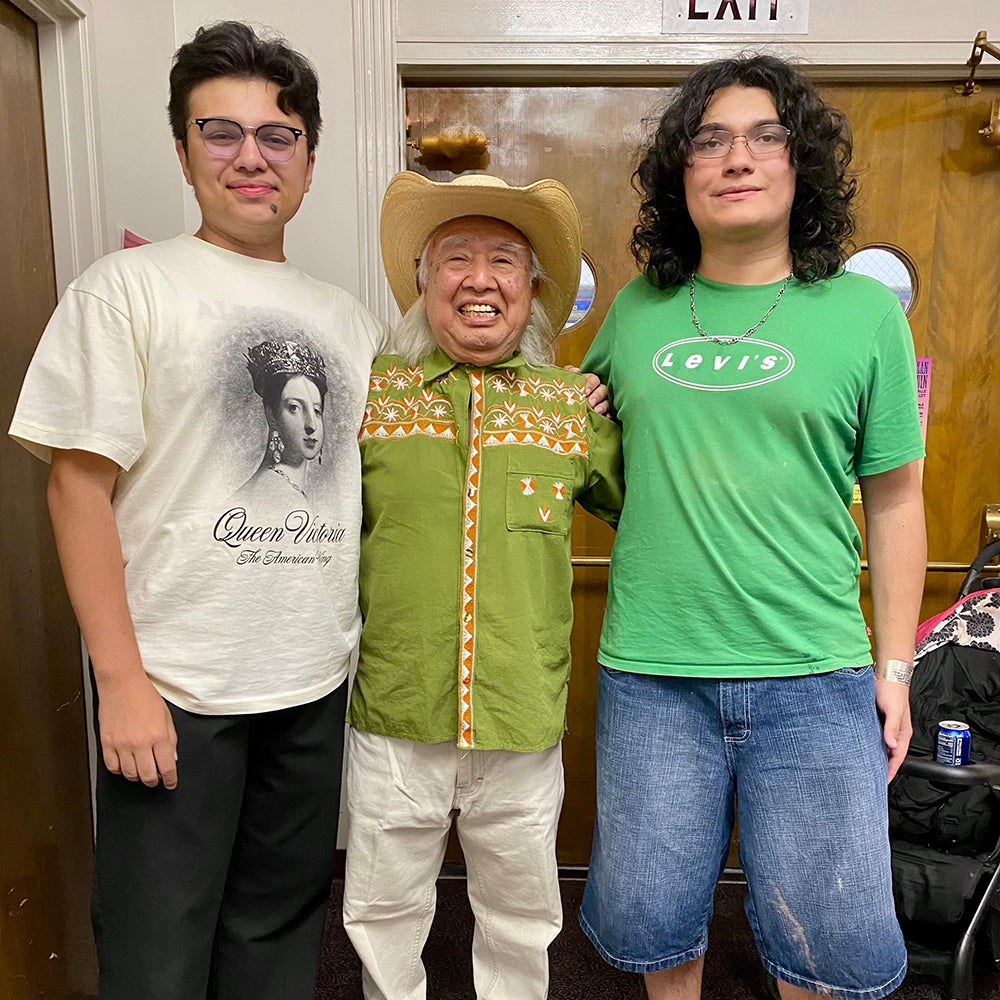
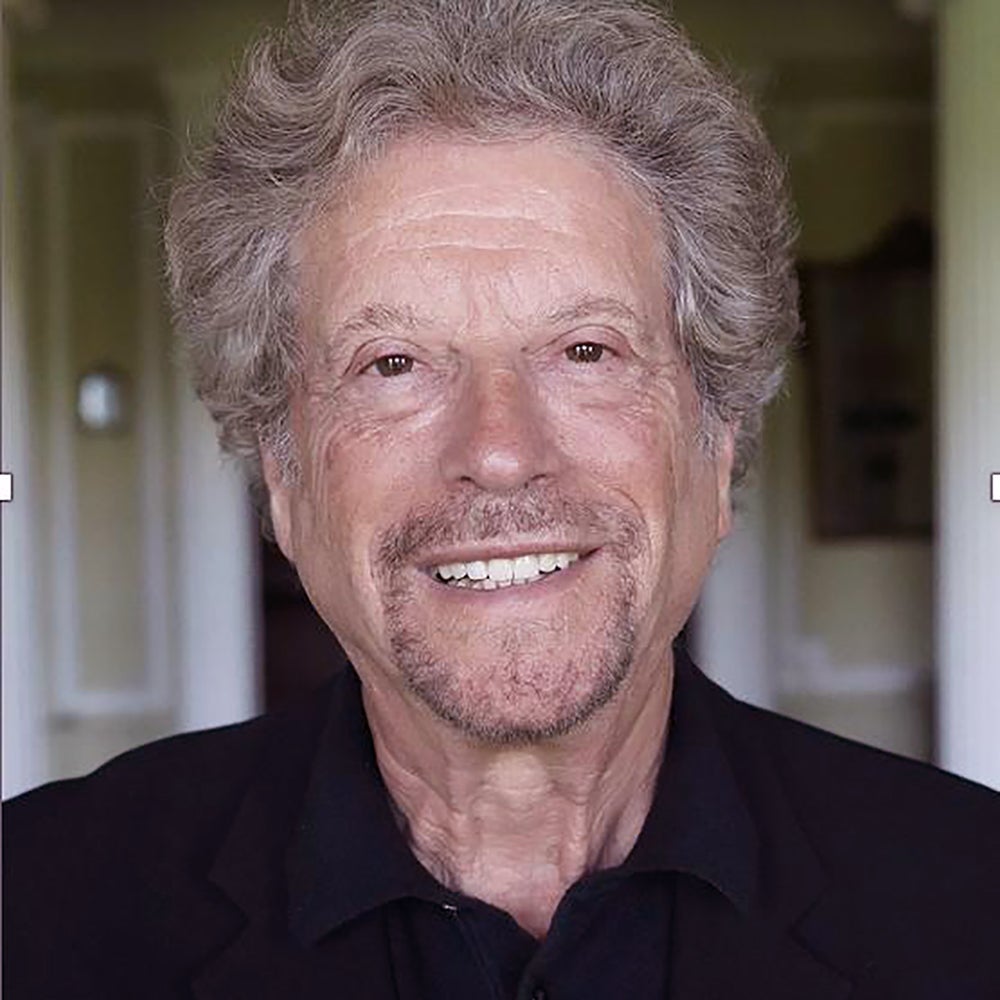
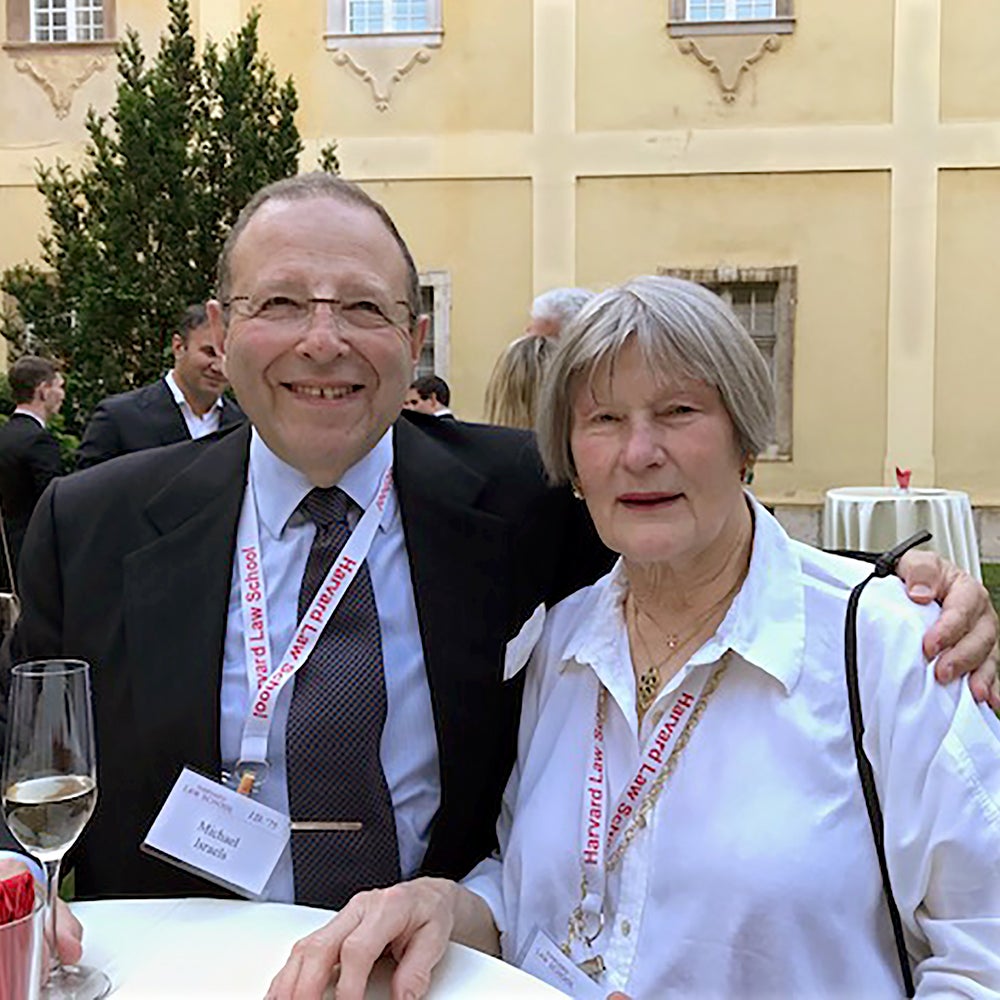
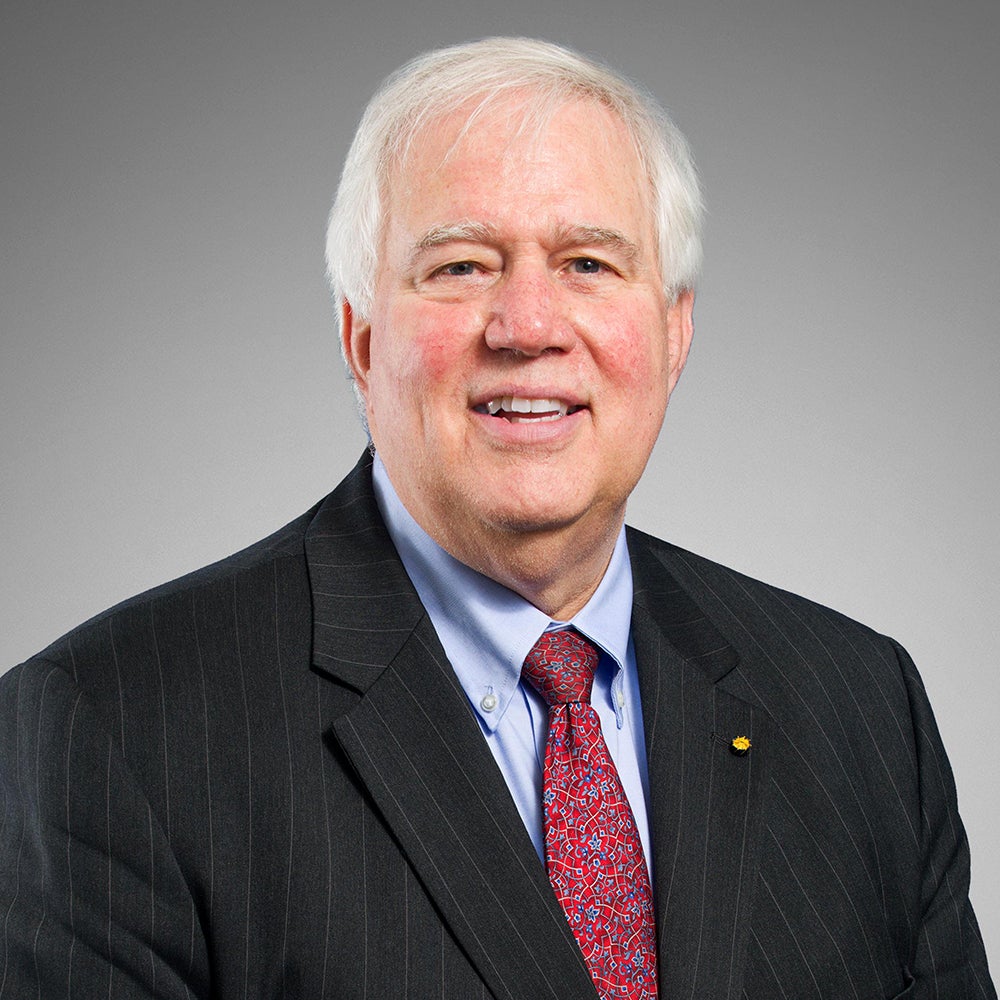
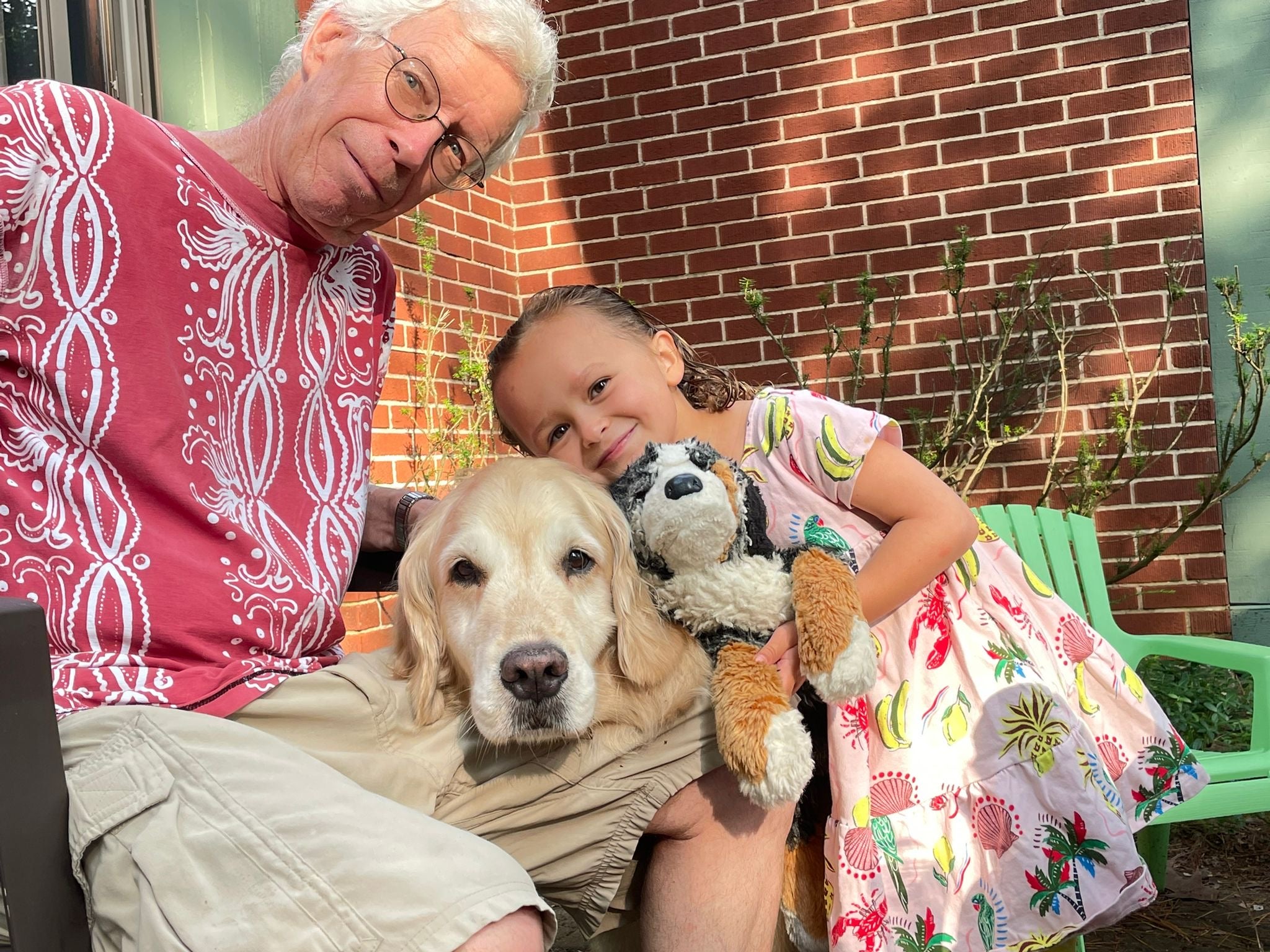
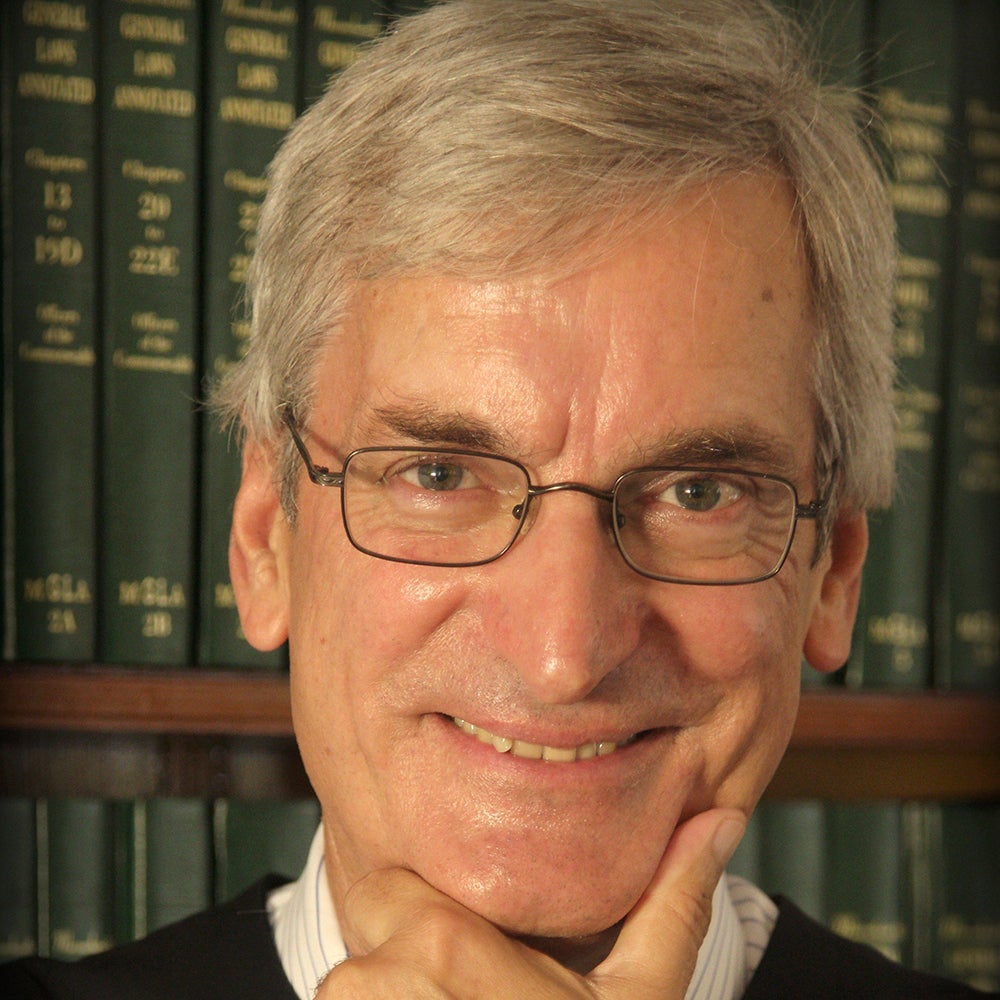
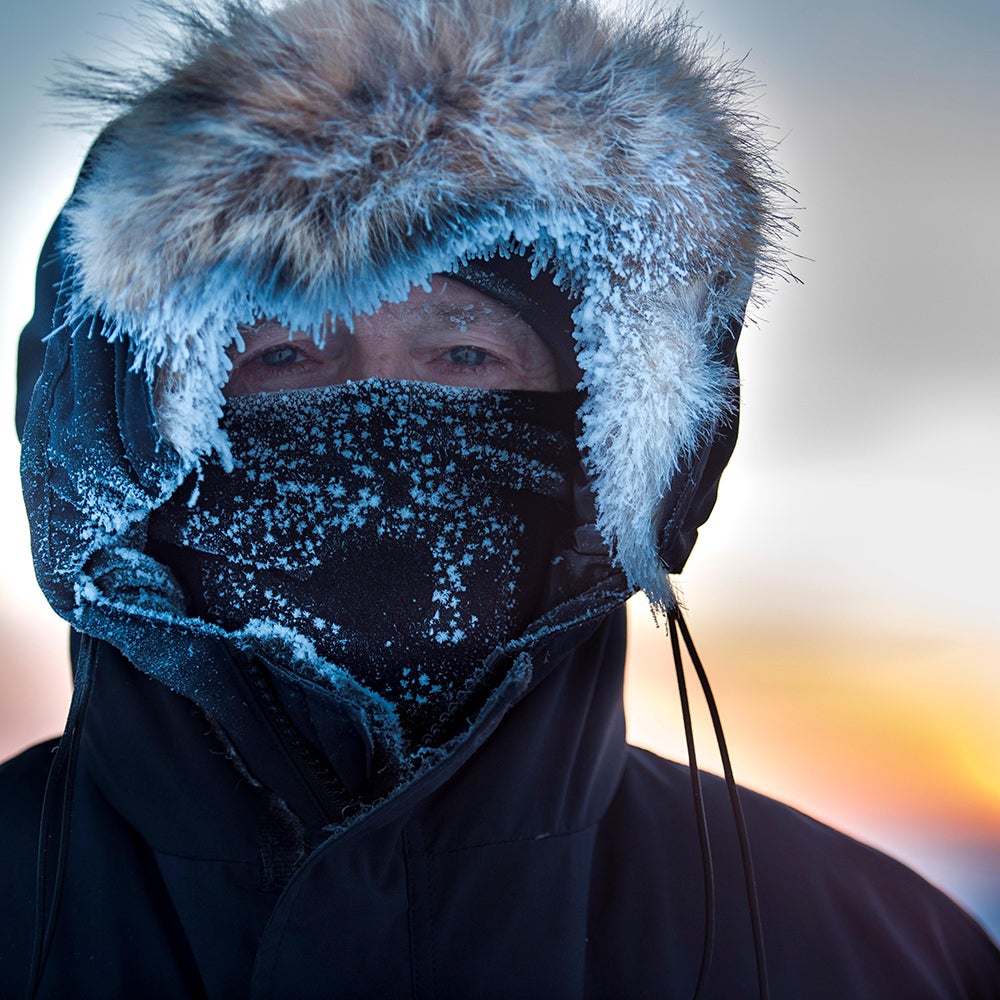
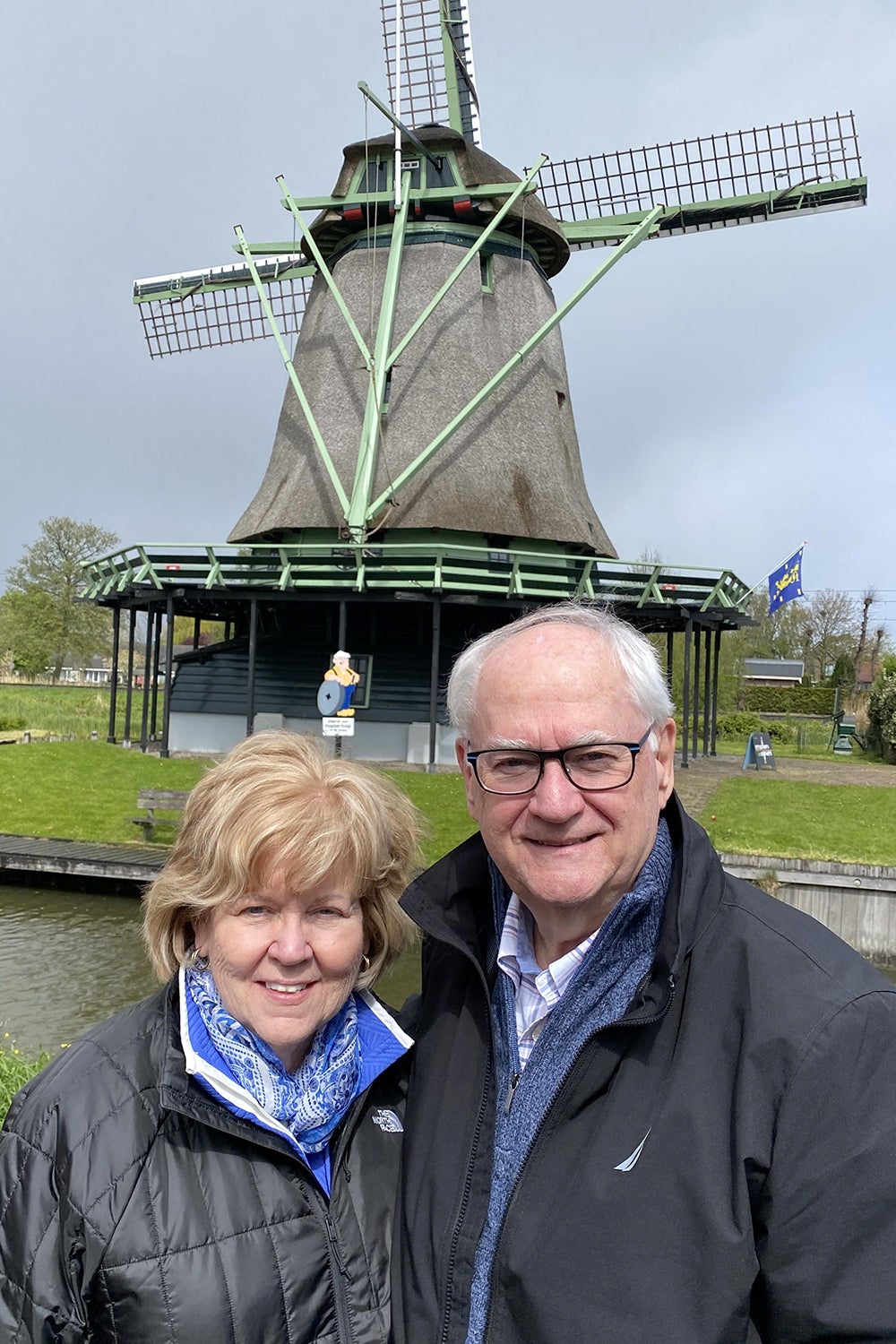
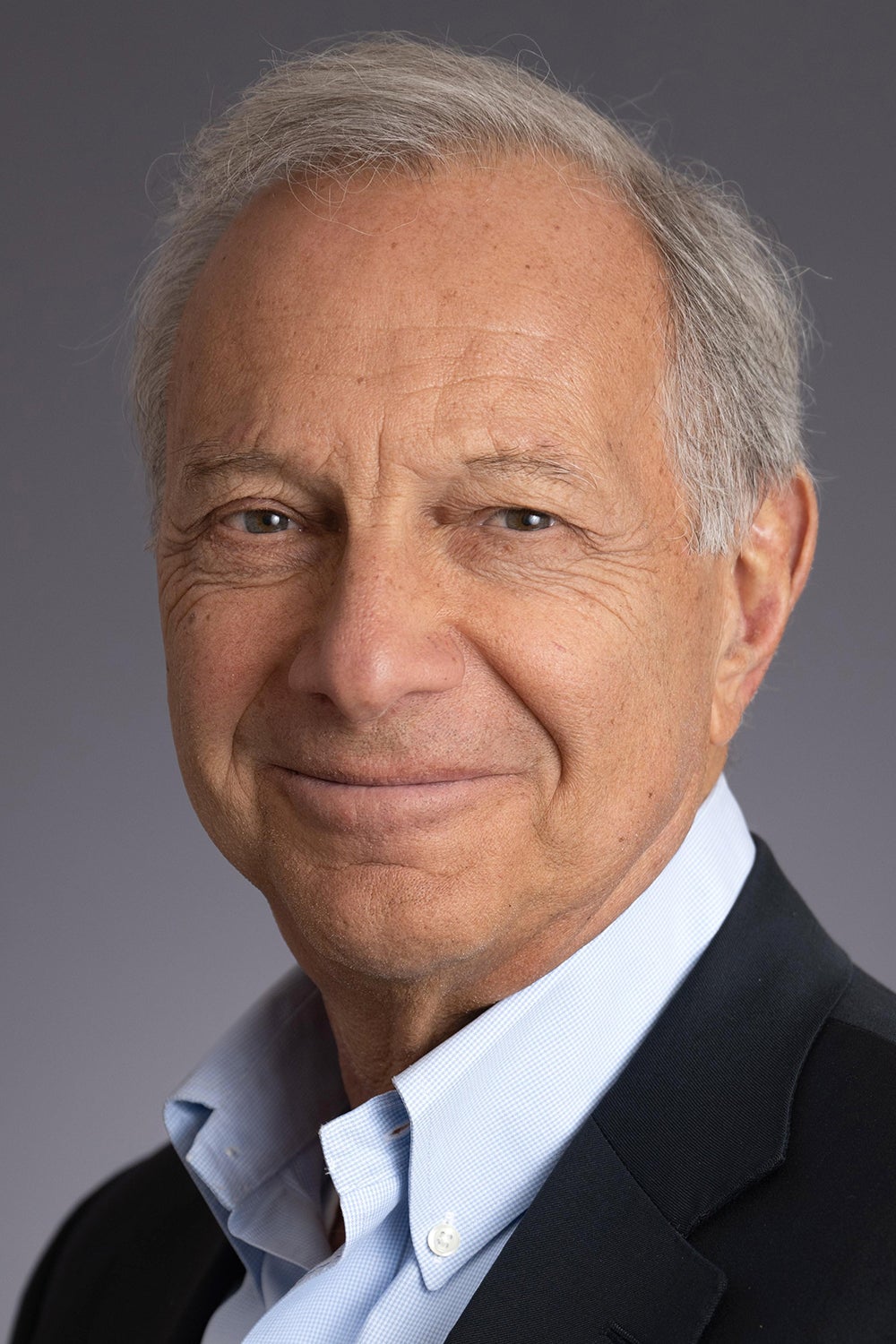
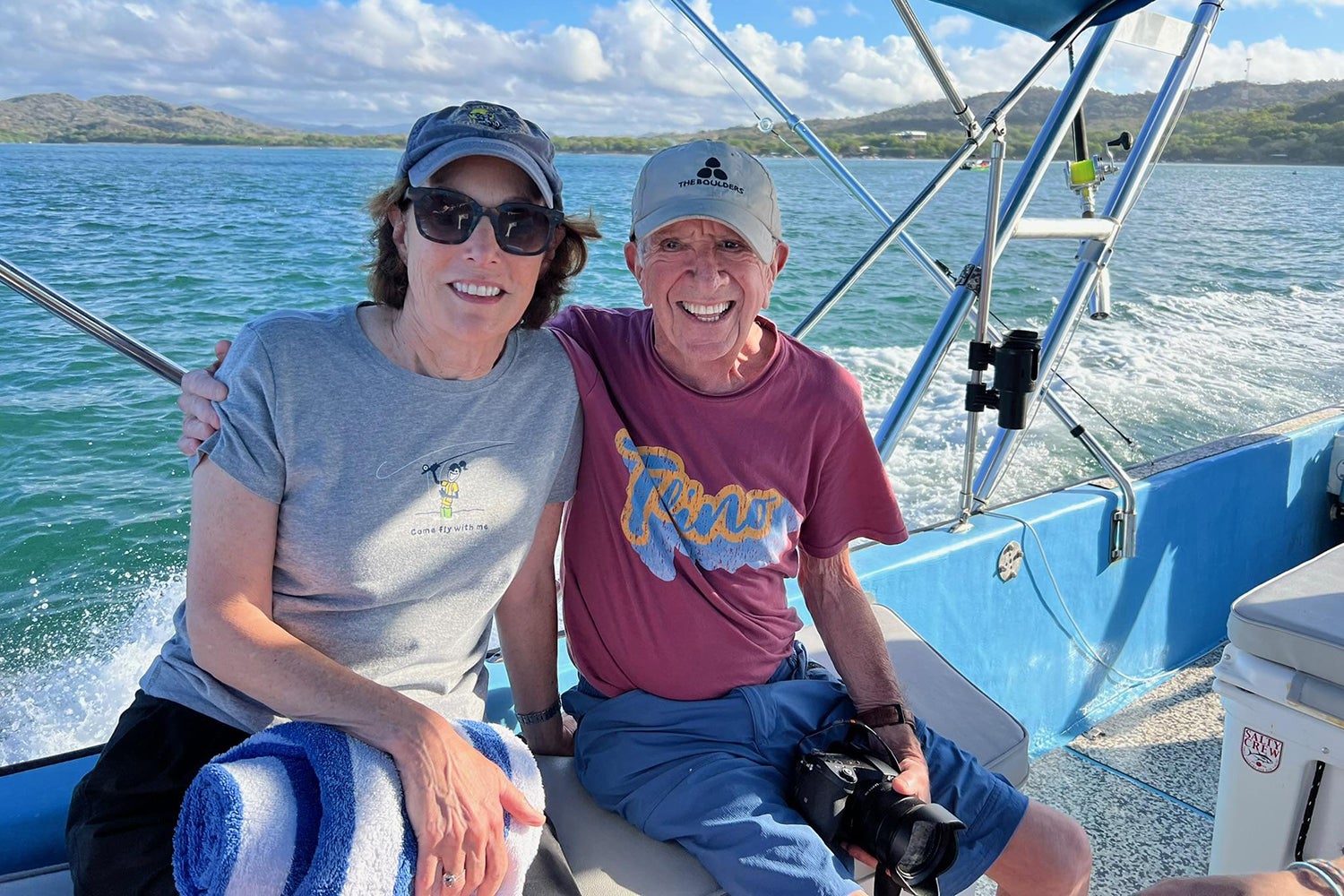
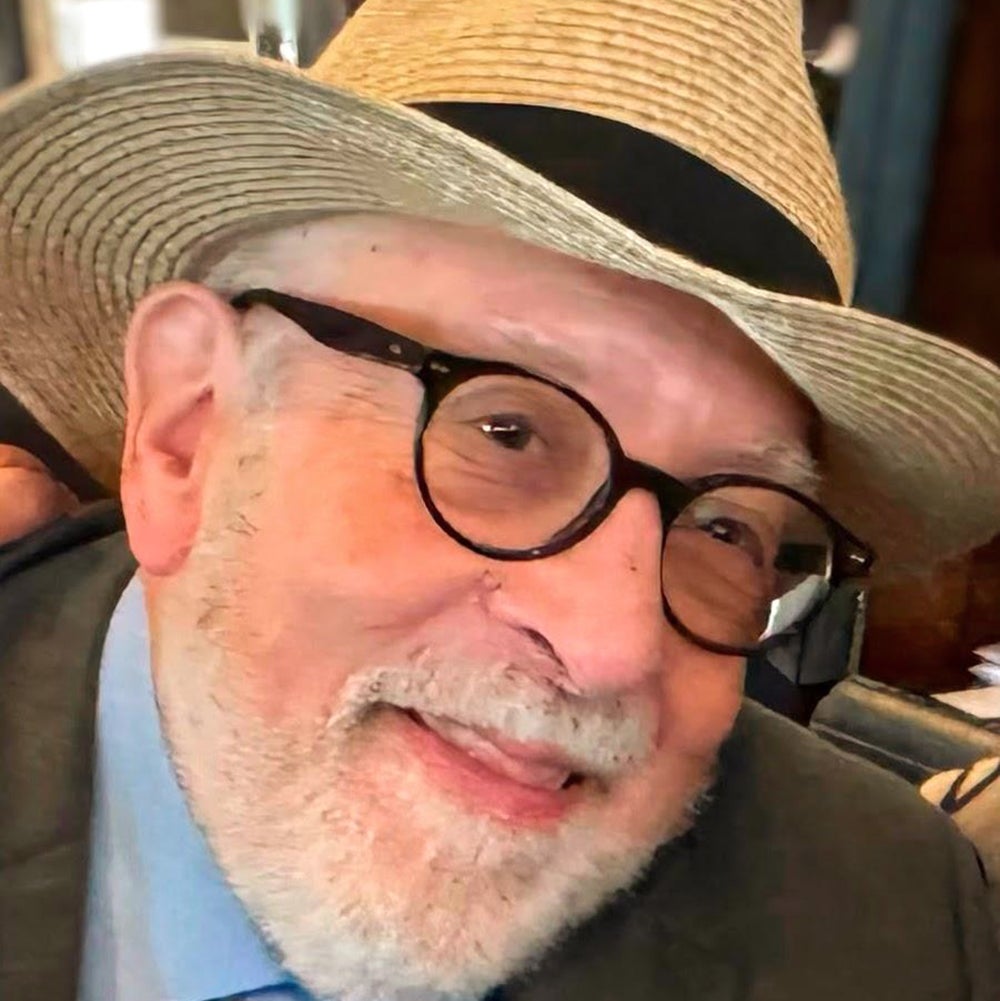
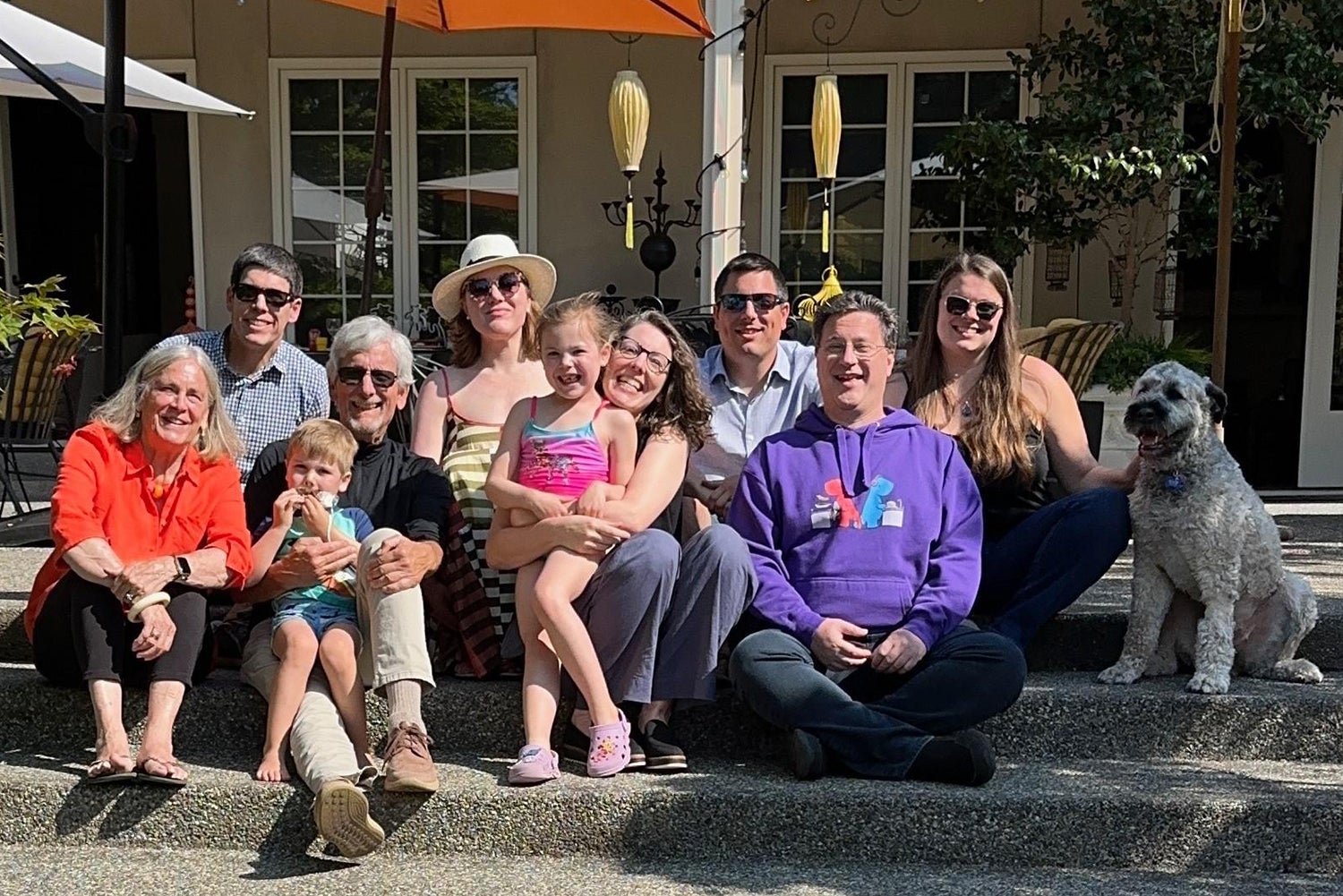
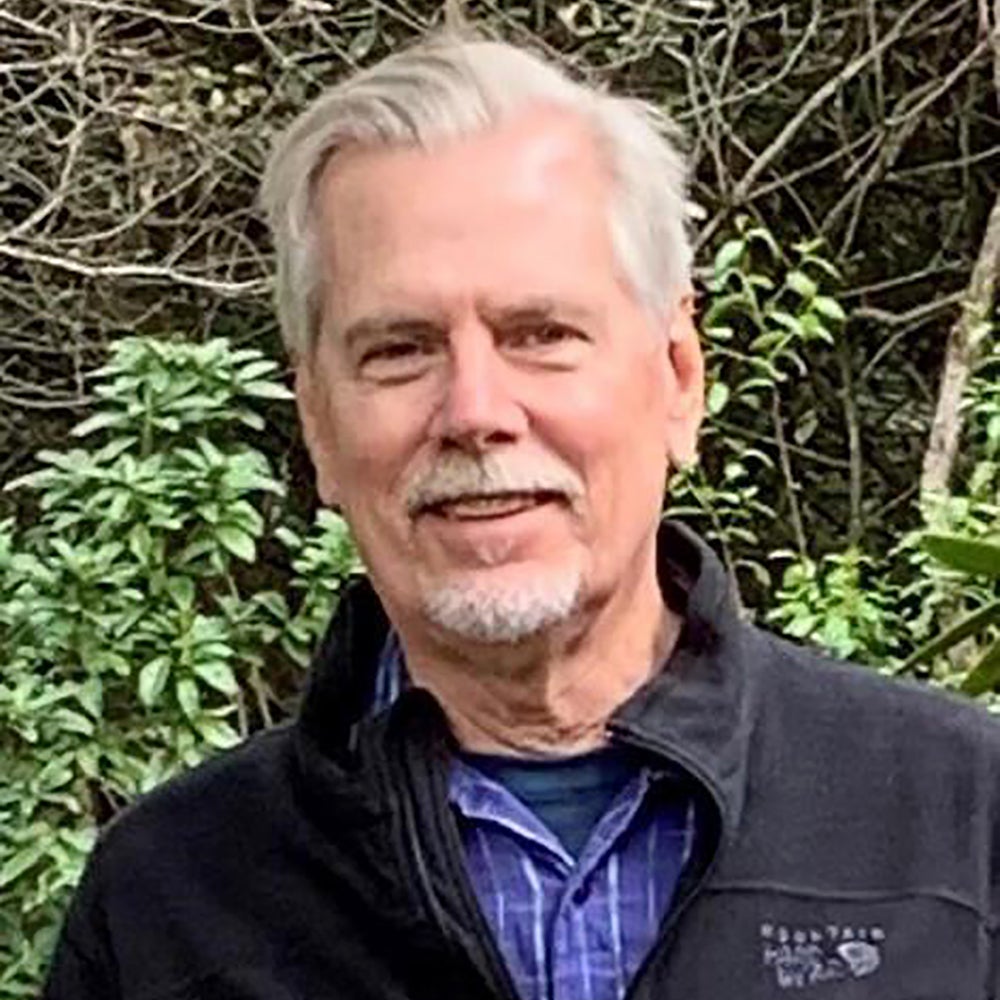
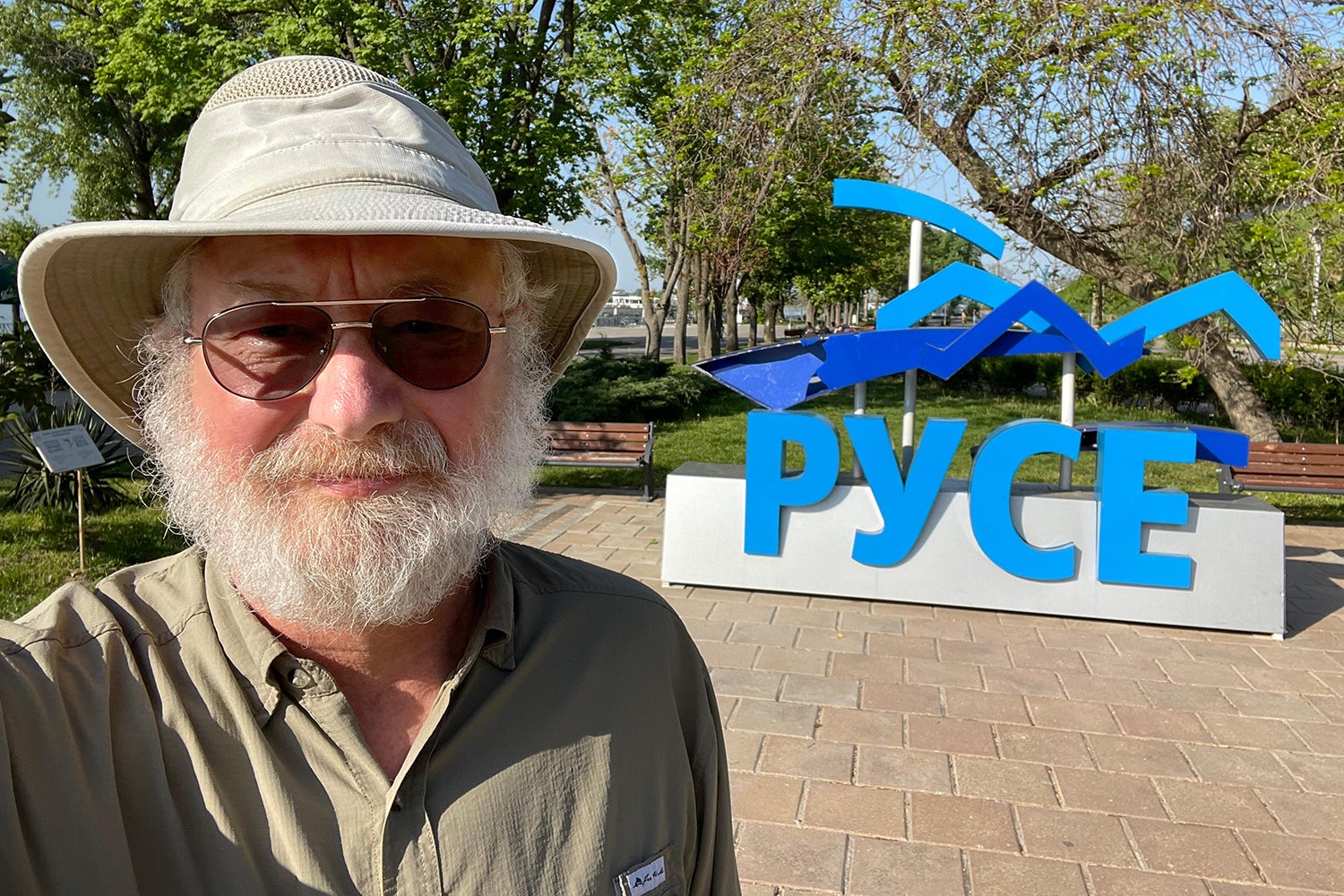
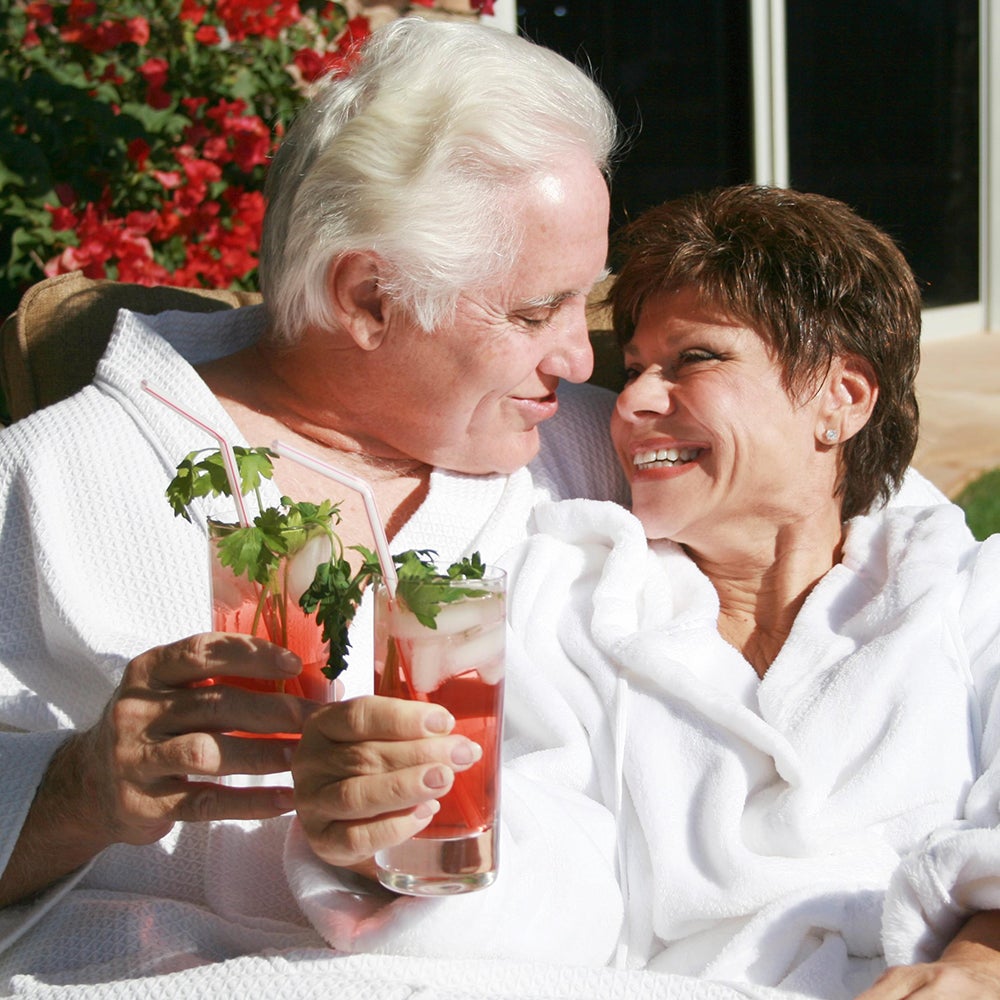
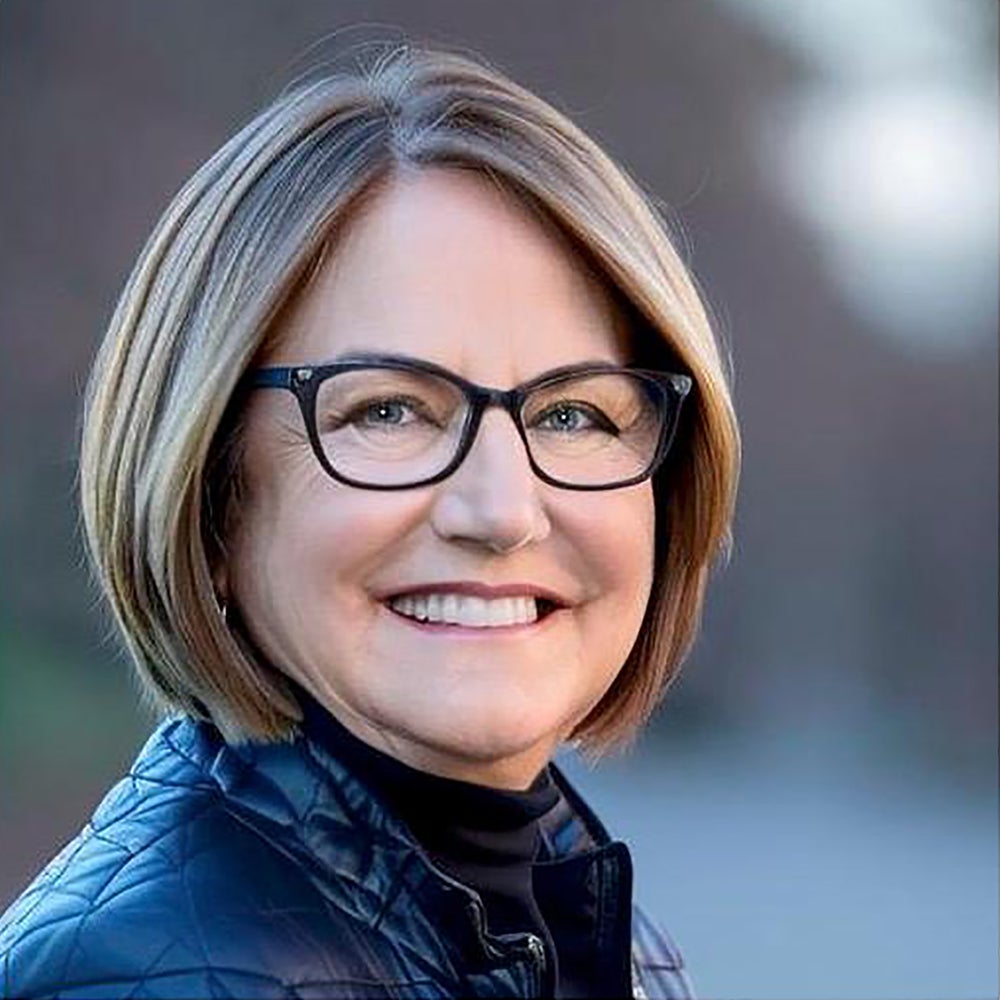
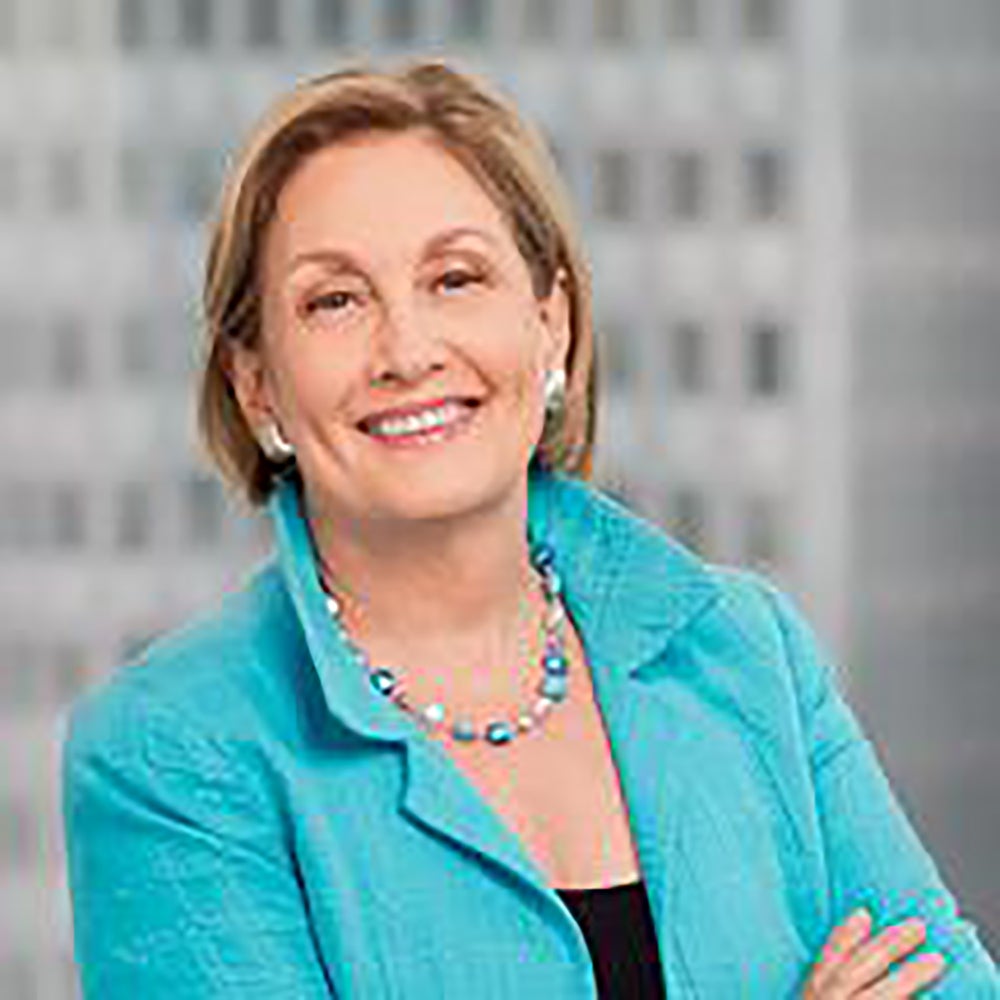
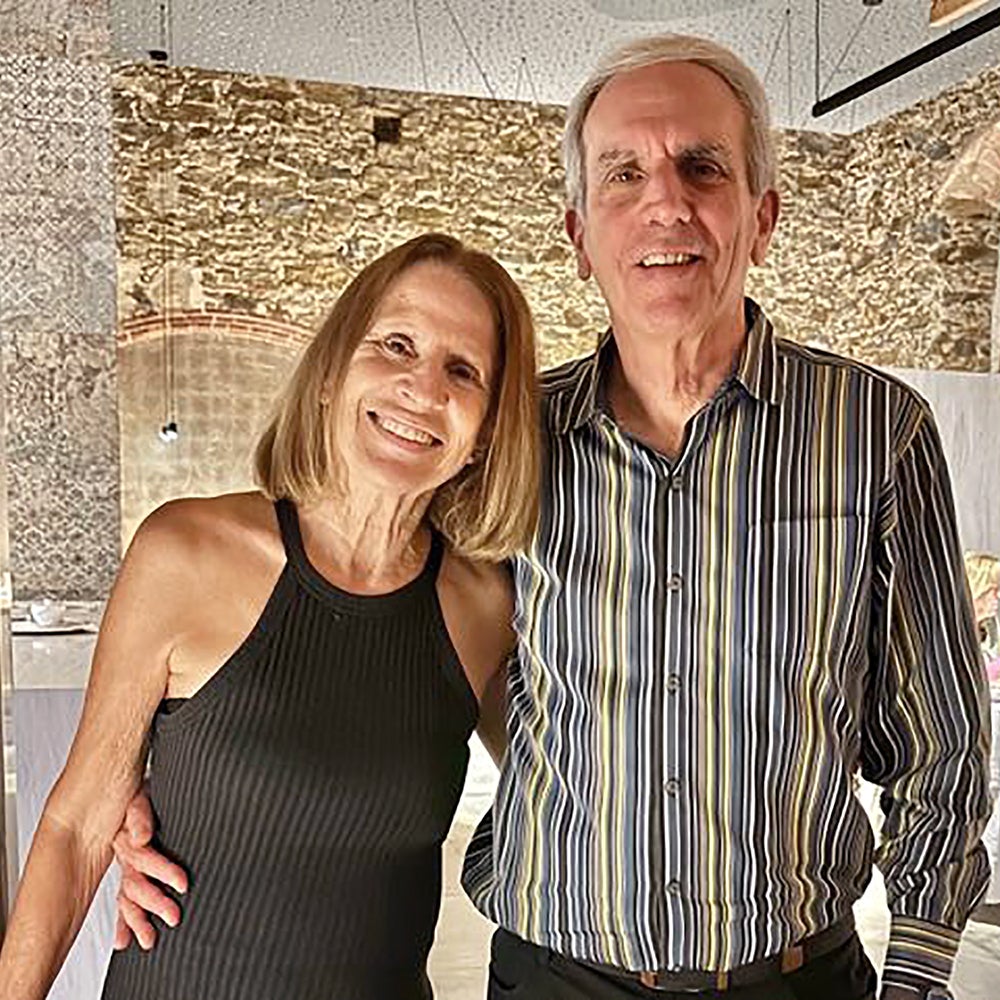
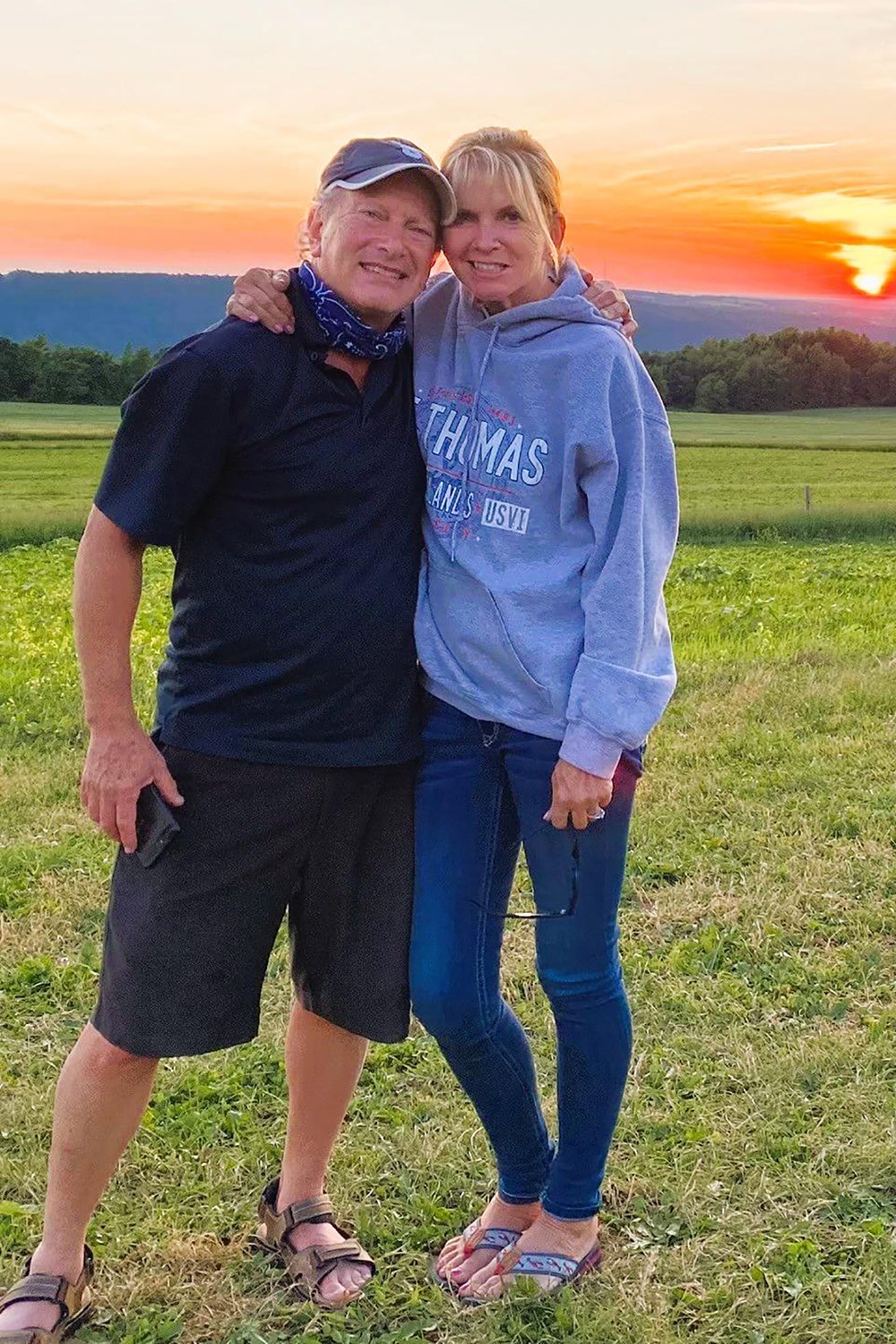
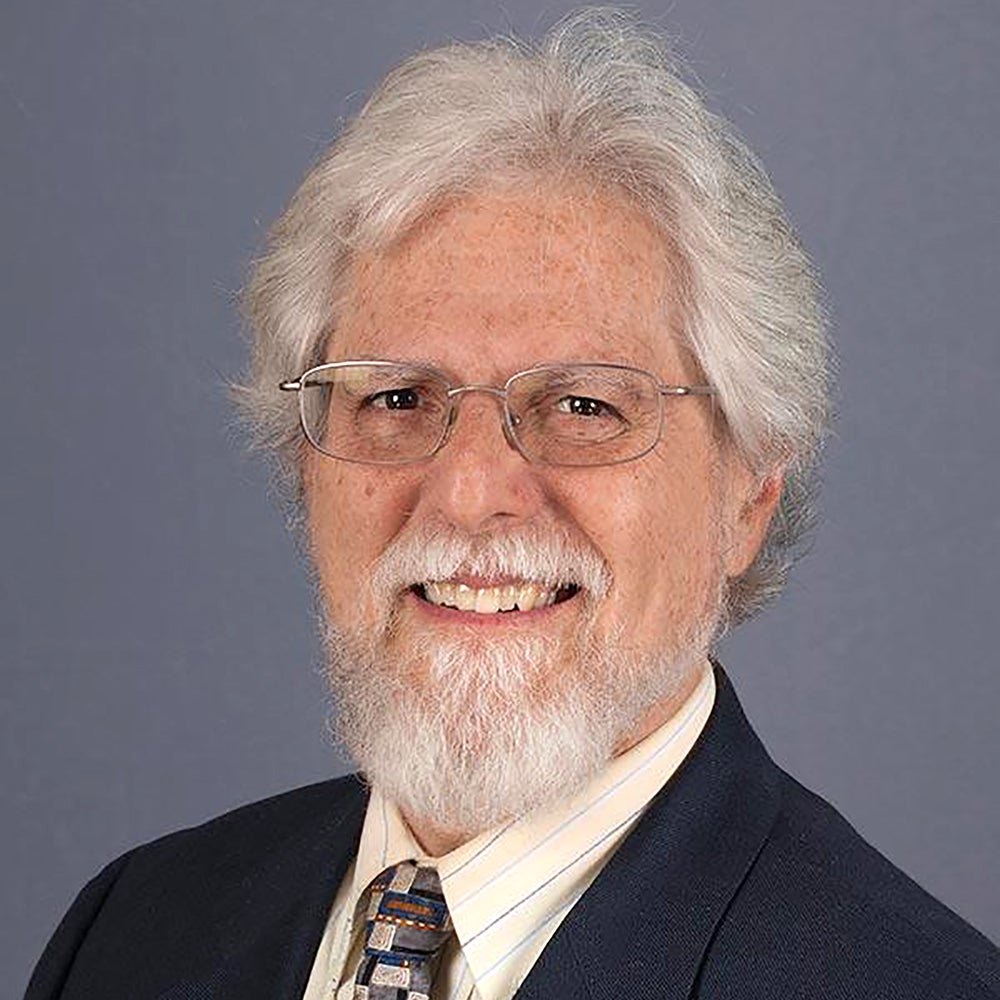
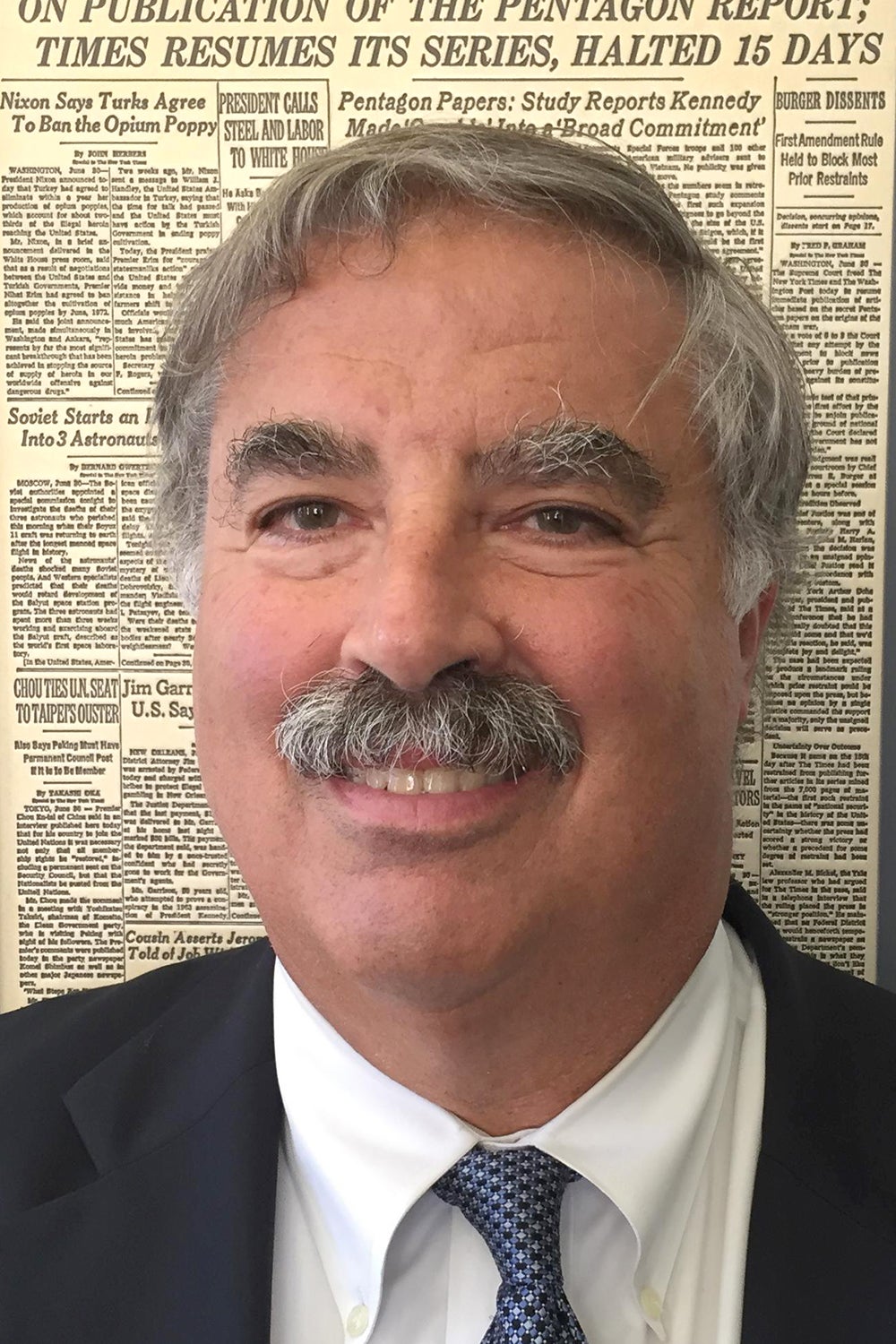
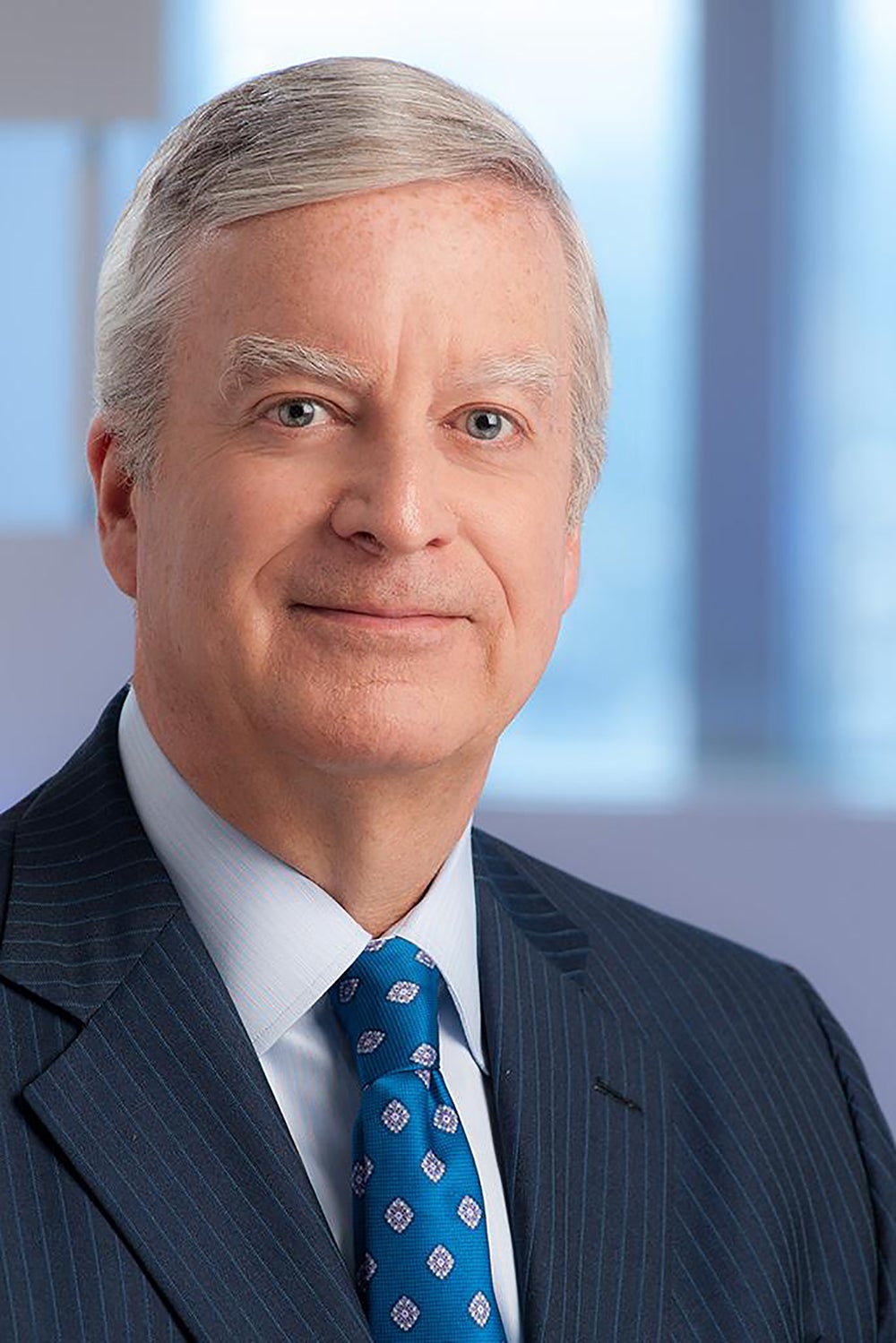
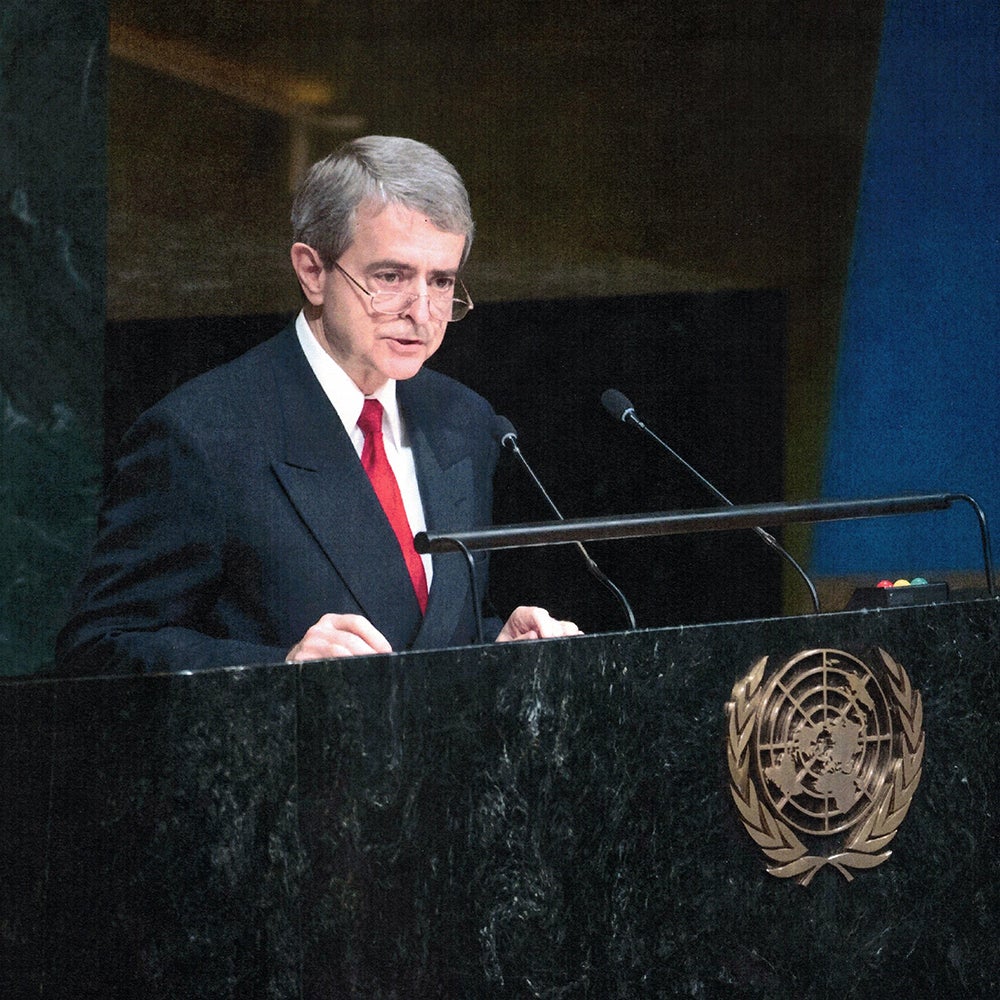
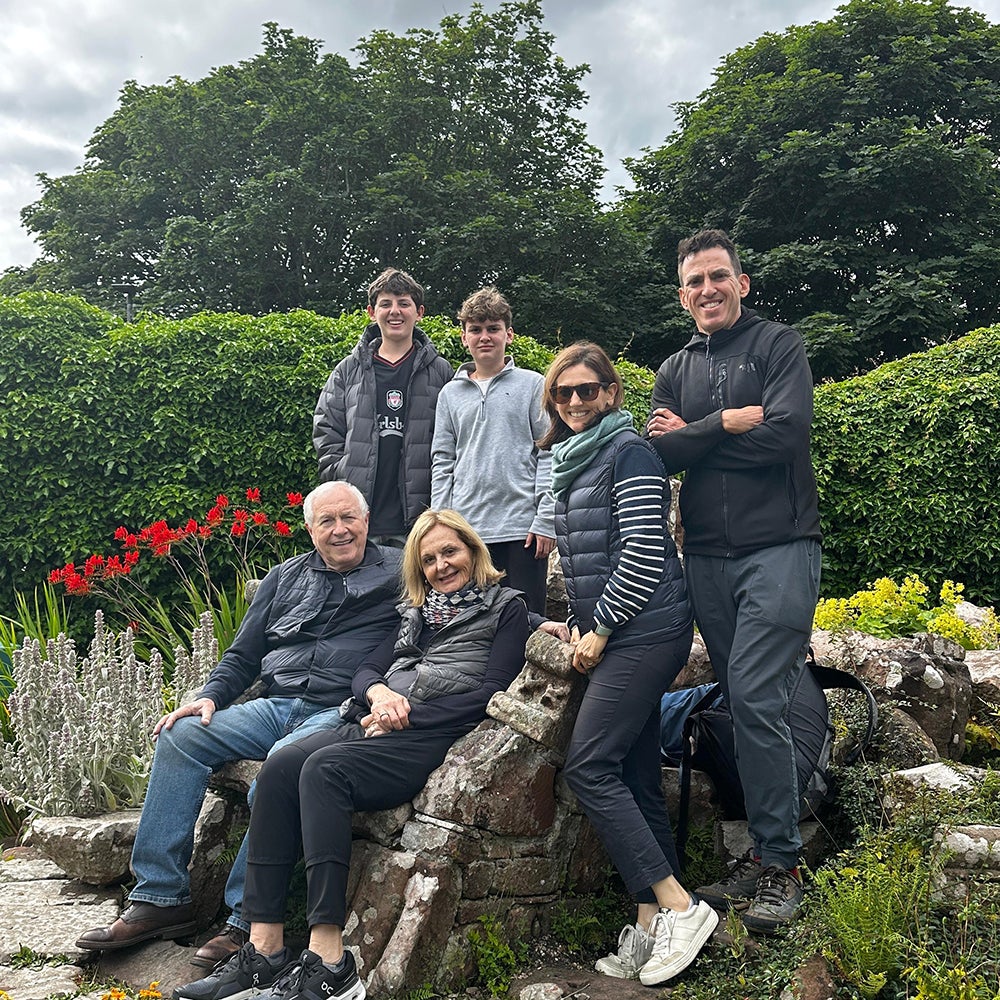
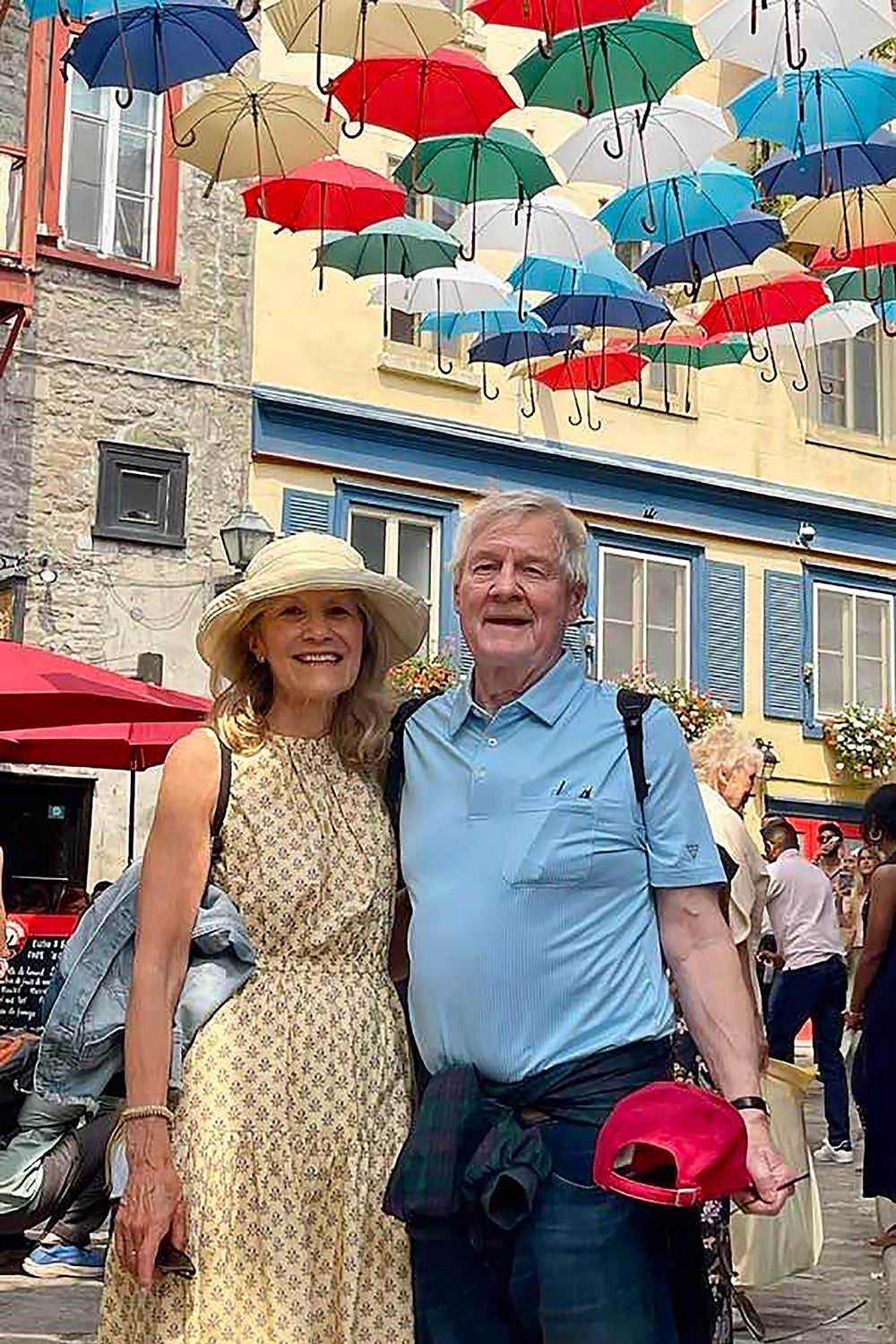
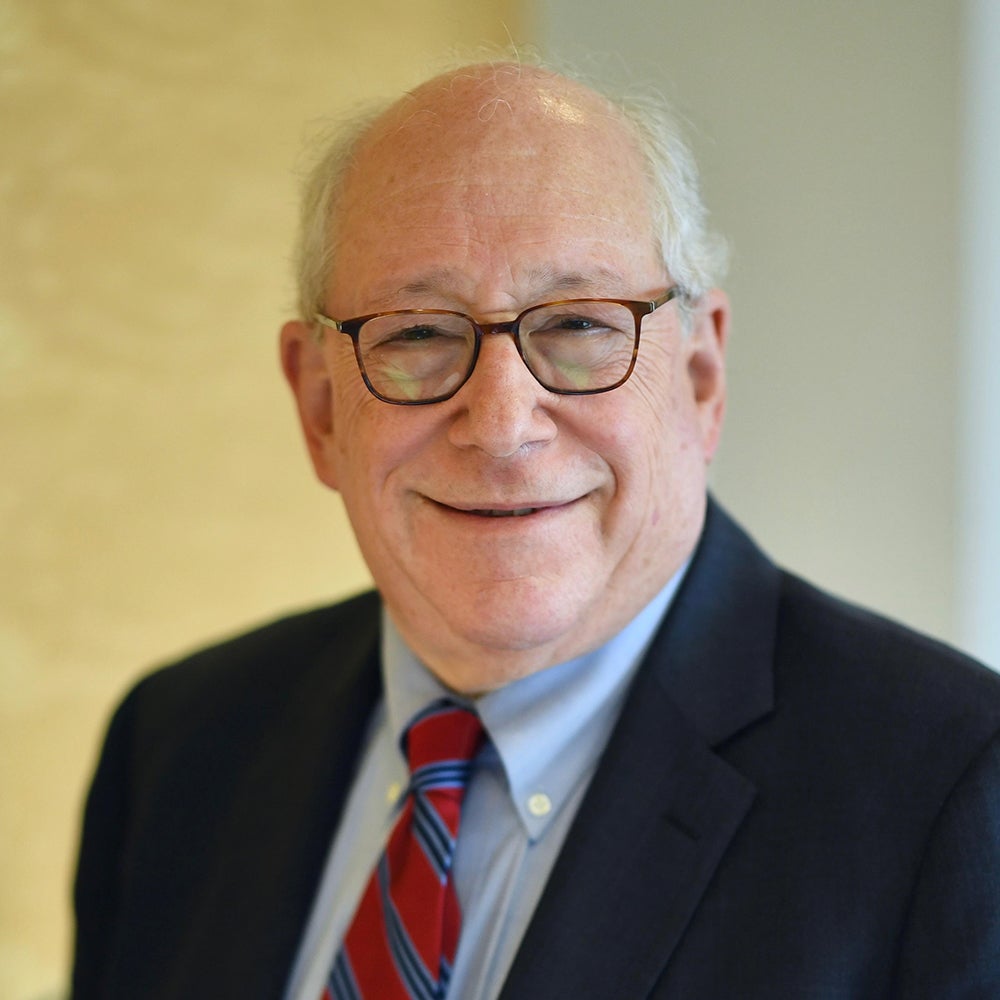
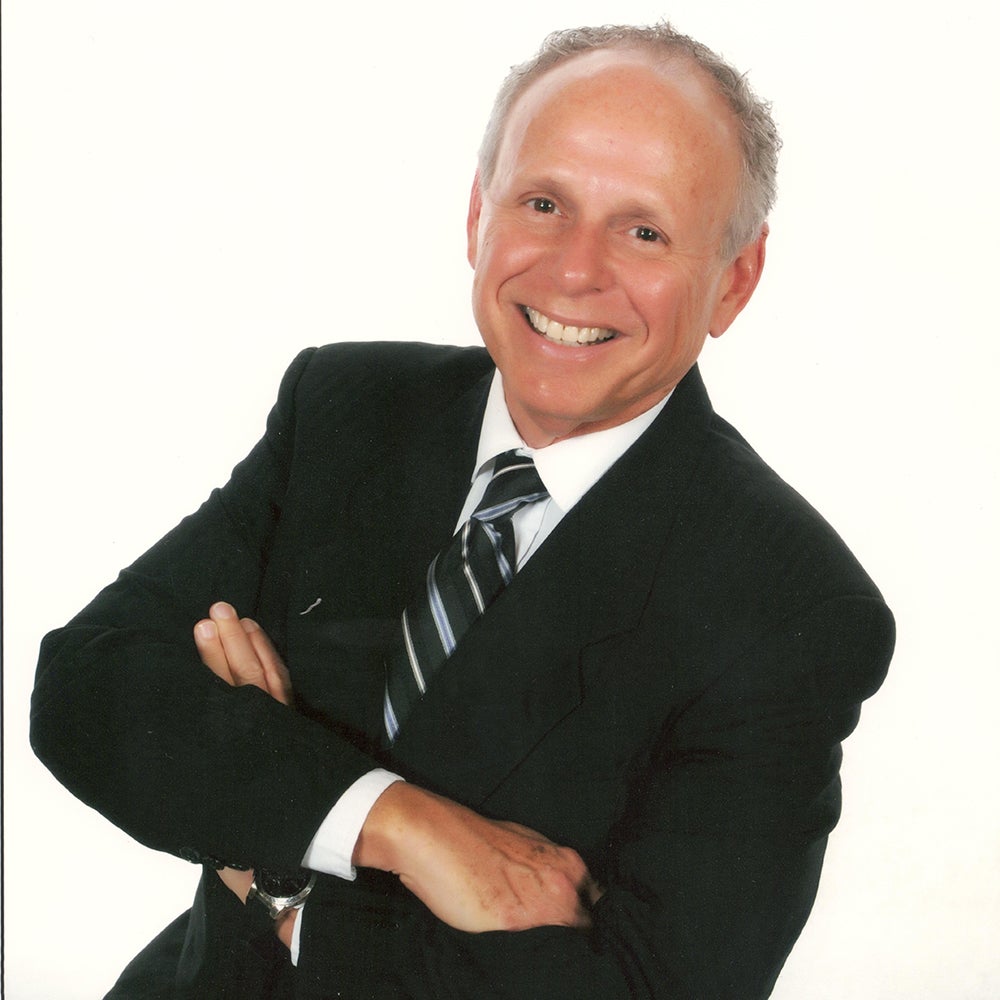
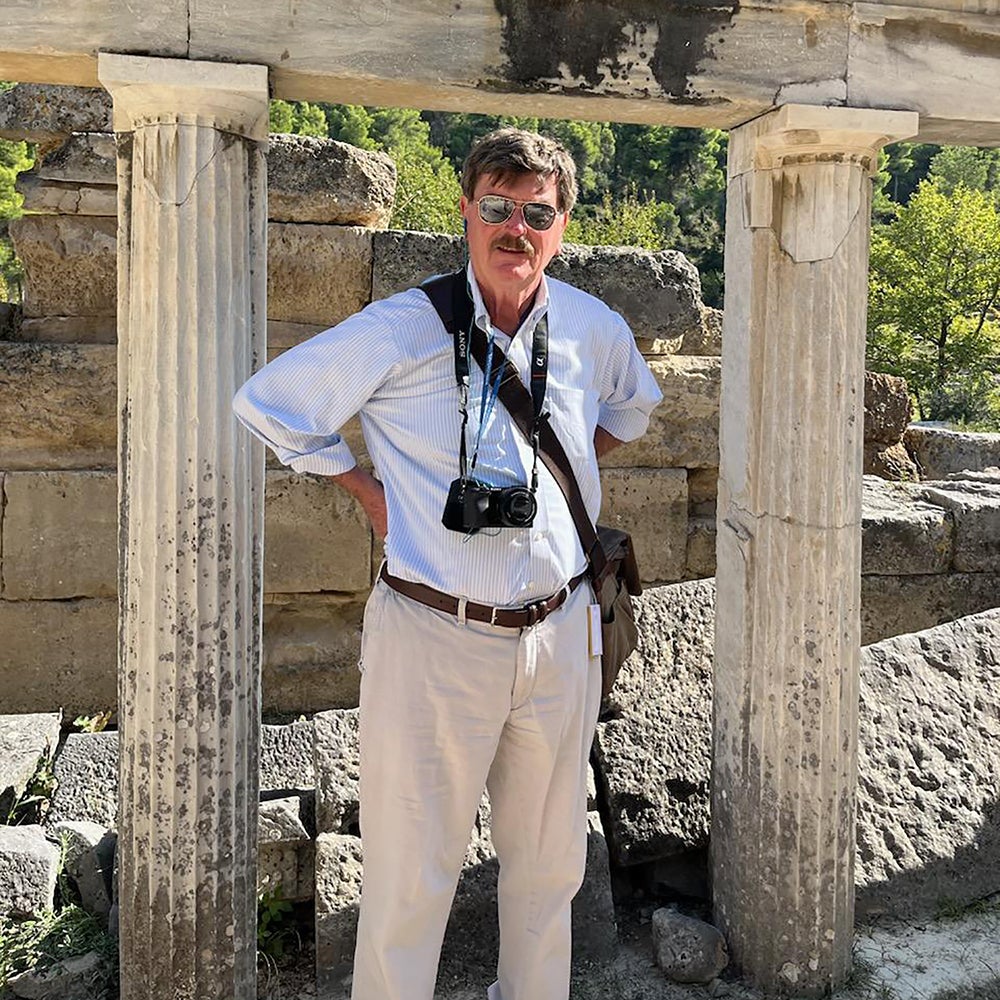
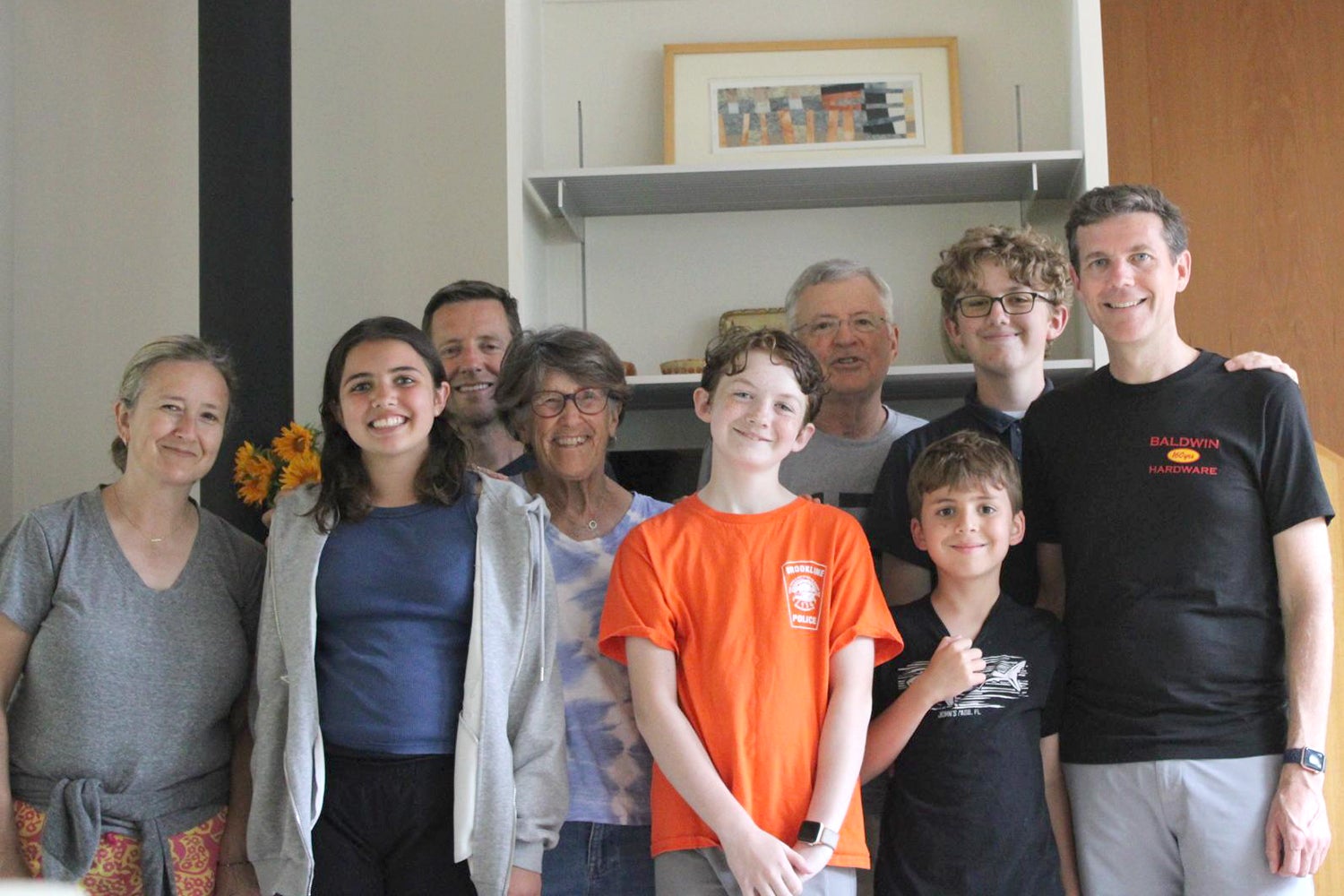
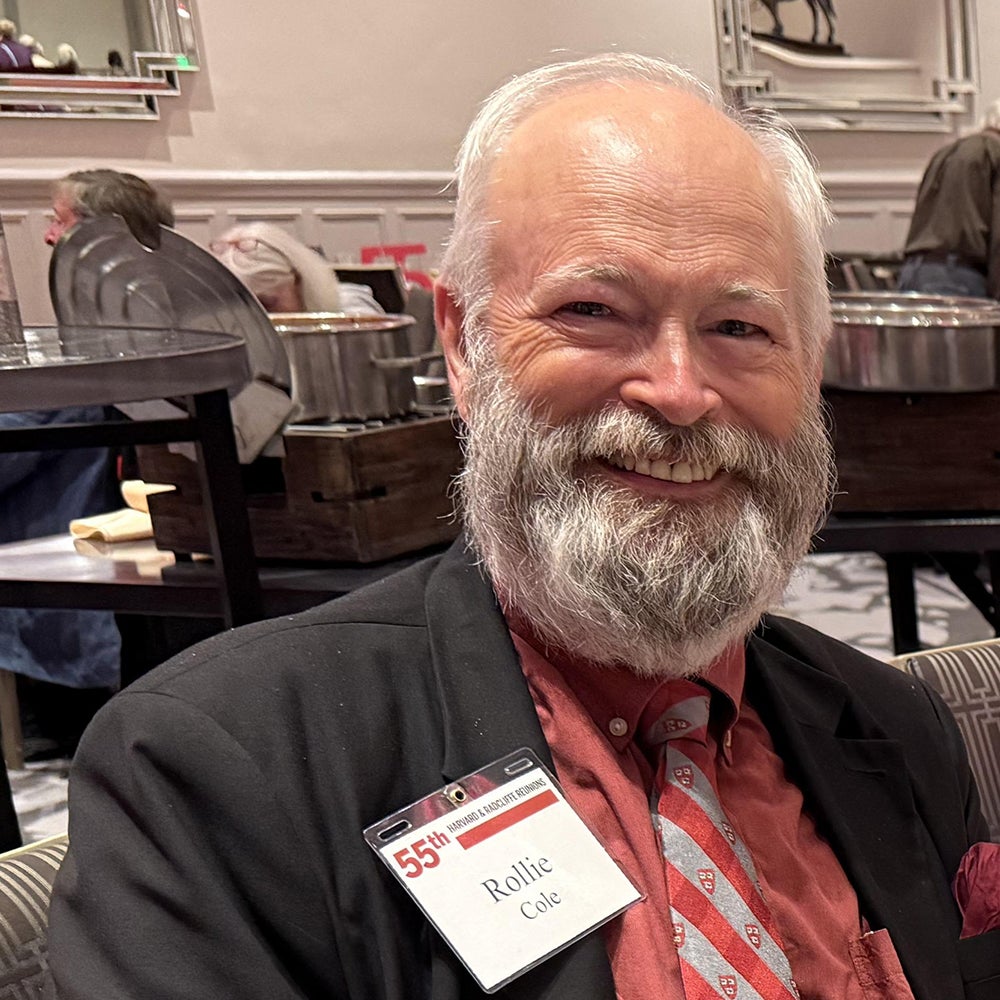
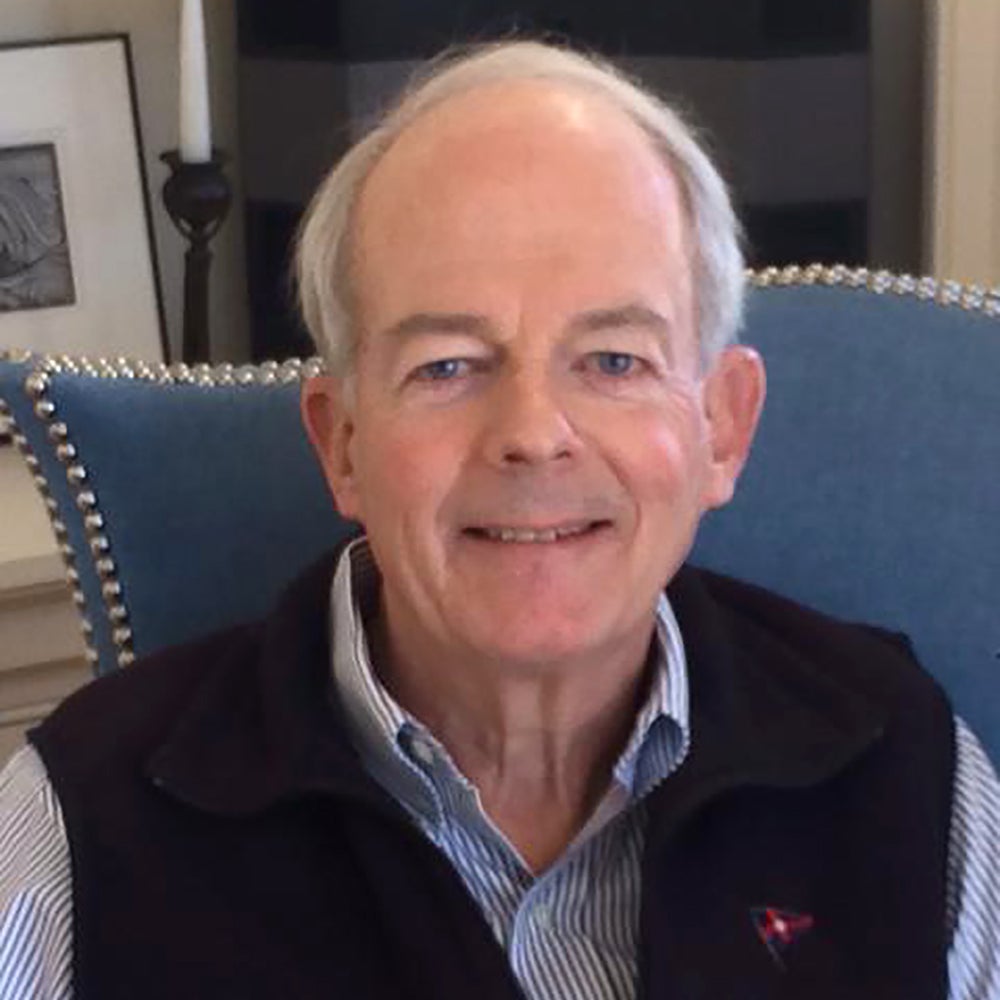
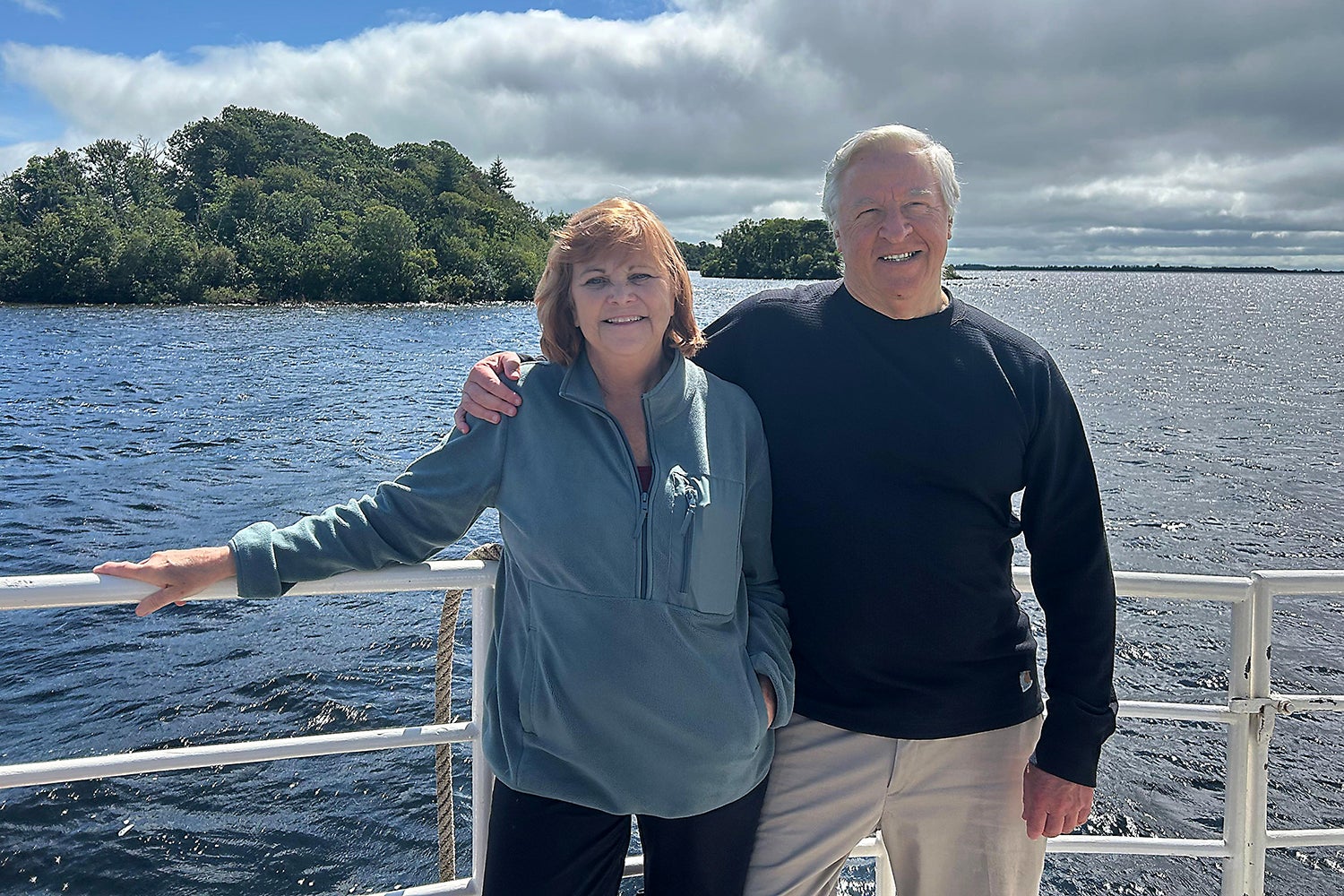
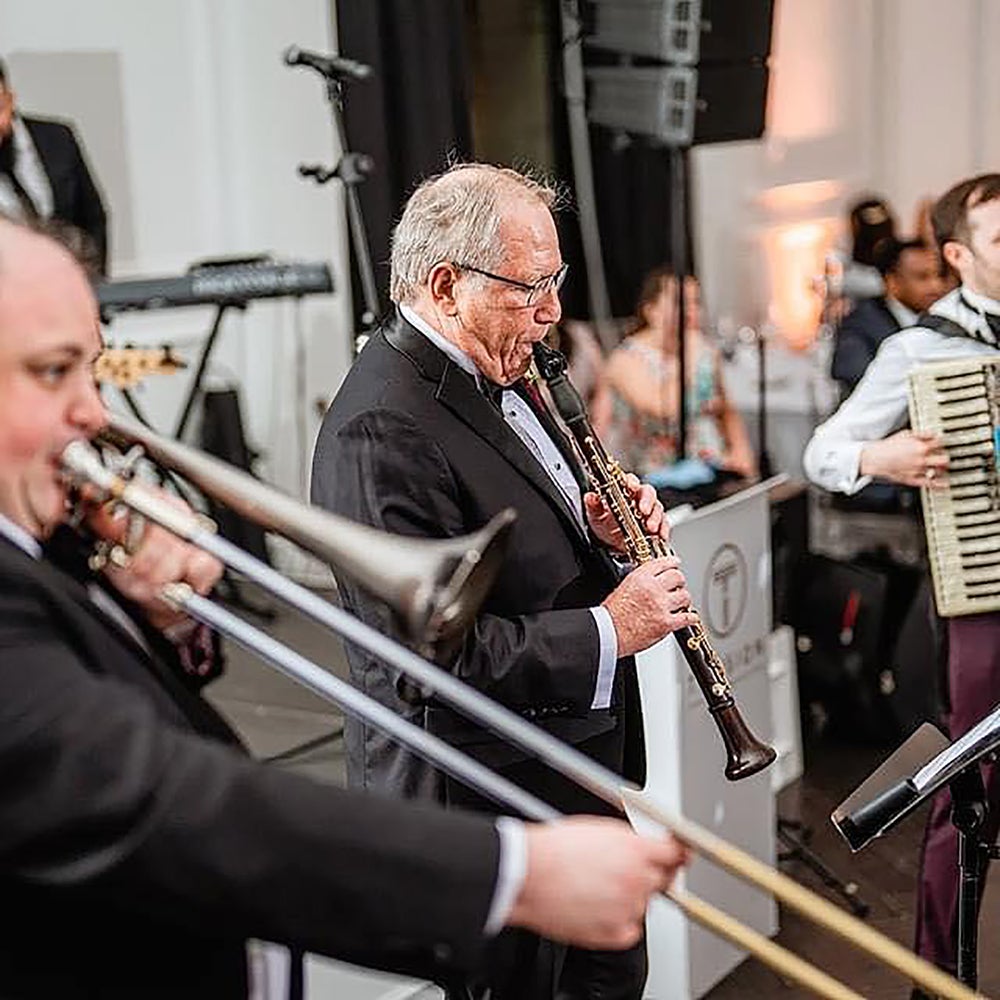
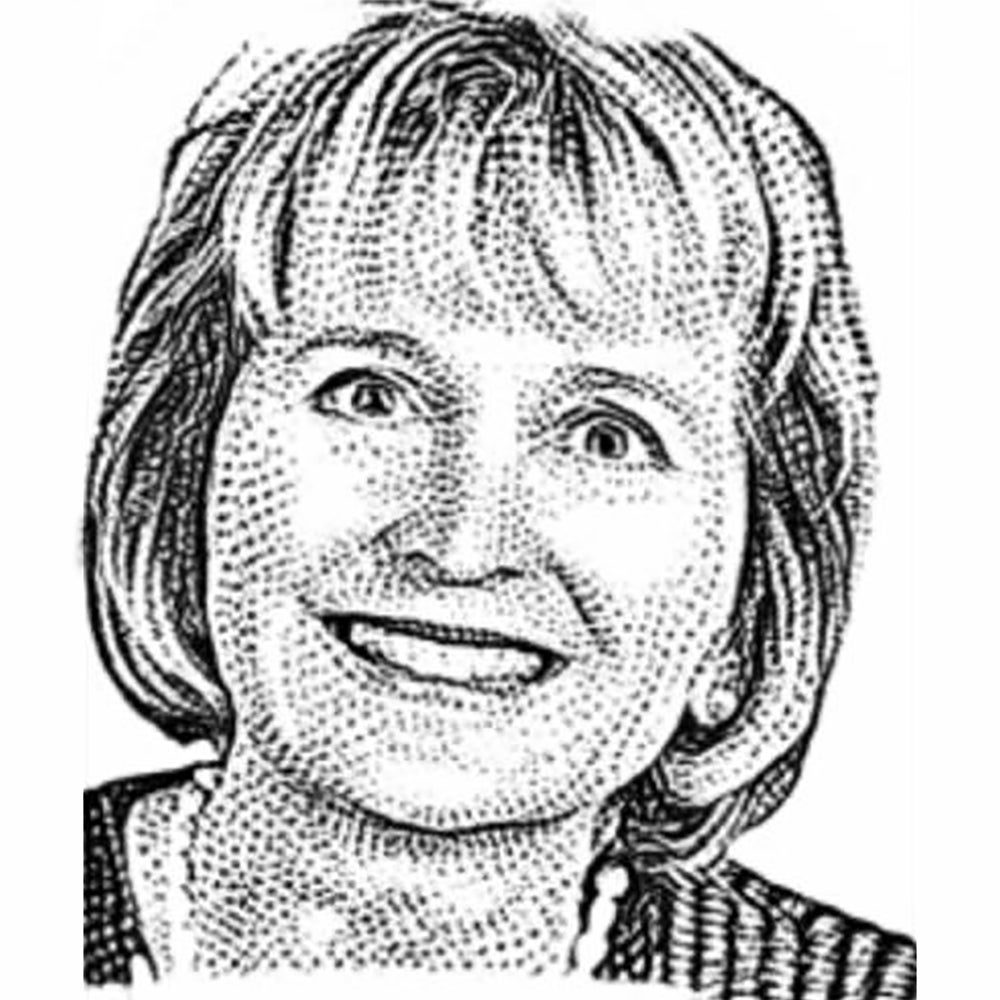
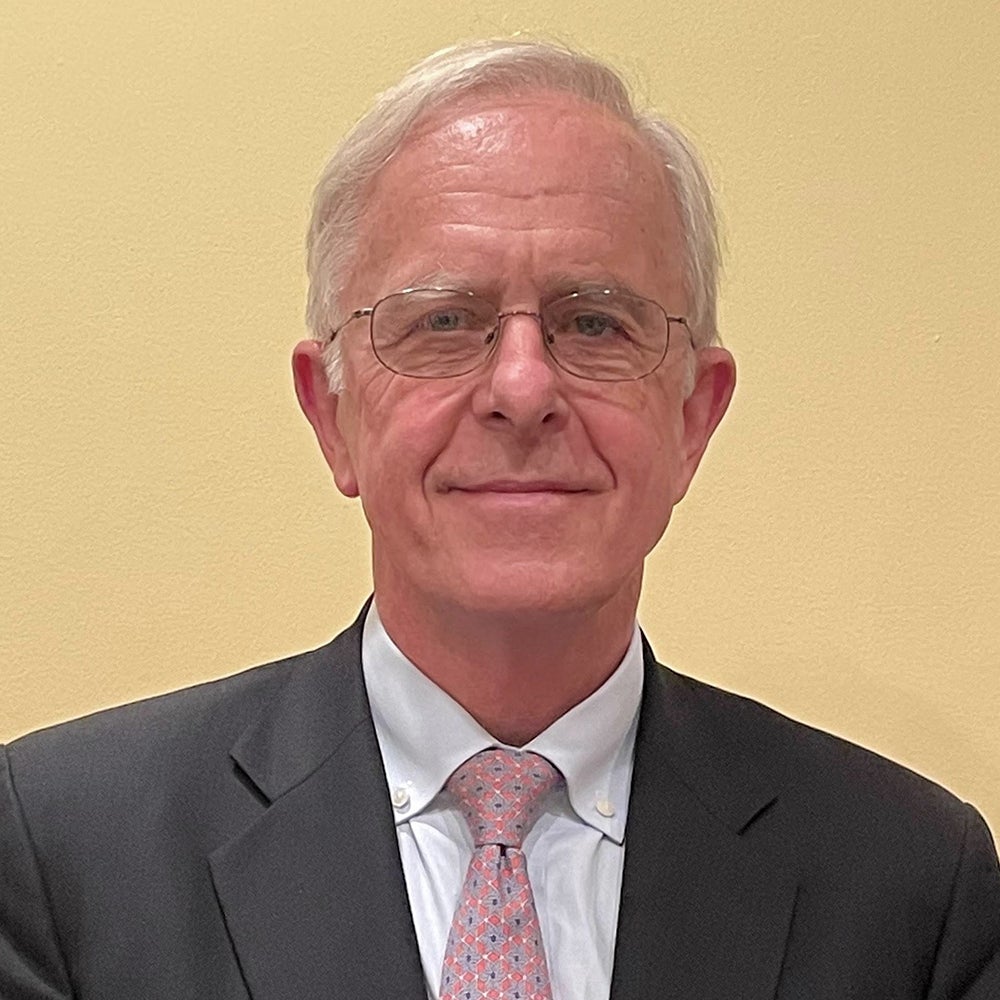
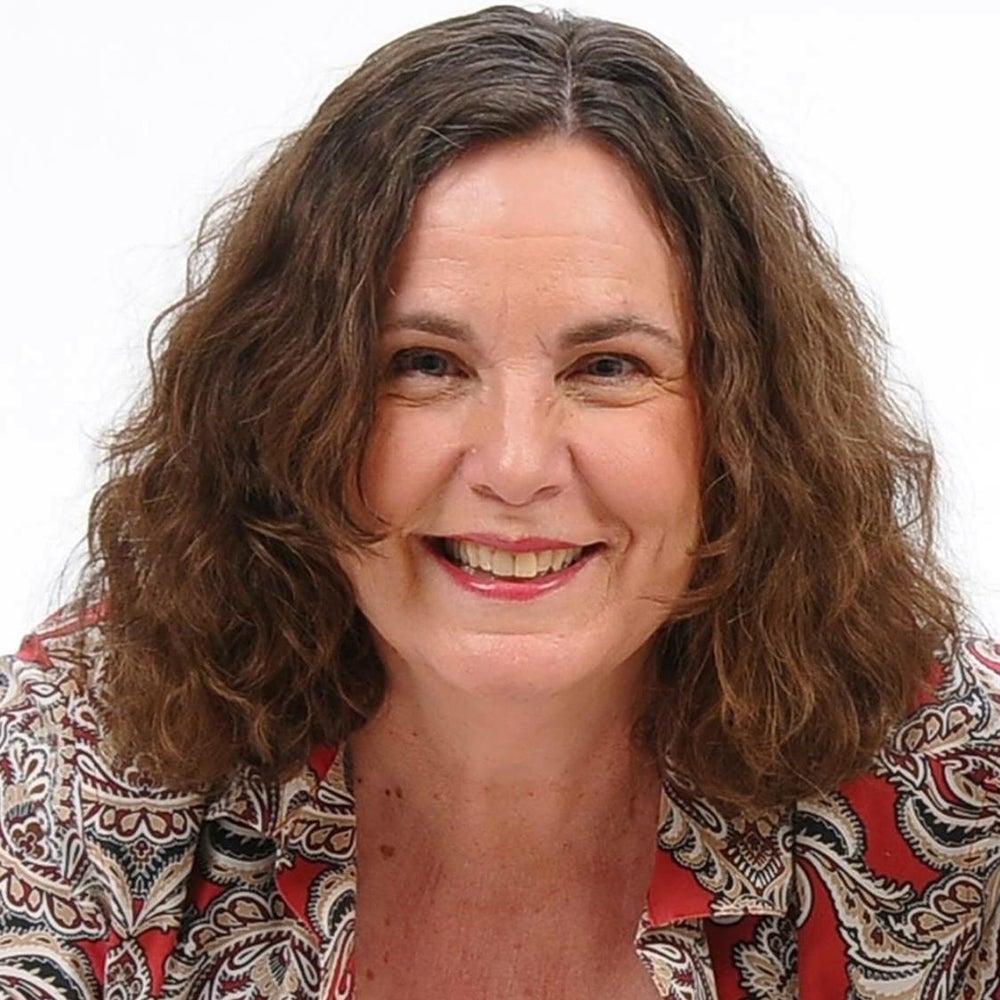
Class Remembrances
Daniel P. Cunningham
Stephen Massad remembers:
Dan and I first met at Princeton, where he was a year ahead of me. When we found ourselves both at HLS and in the same first-year section, we and others formed a study group, where we got to know each other better. After graduation, Dan ended up at Cravath and I ended up at Baker Botts. In 1999-2000, we worked opposite each other on a complicated deal between two chemical companies that consumed weeks of meetings at Cravath. My client was convinced that it would have never gotten signed if Dan and I hadn’t been good friends. Dan was unflappable, with an artful way of defusing difficult situations. He also delighted in taking us to his favorite restaurant, Palm West, where the caricatures on the wall included him and his sons.
In April 2005, he and Alice were in Houston. Serendipitously, we discovered over dinner that we both enjoyed hiking. On the spot, he invited me to join him and others on a week-long hiking trip in England that September. That led to a string of other memorable hiking trips all over Europe every September, until shortly before his death in 2019. Dan, never reluctant to be assertive but always with a sly grin, was the force that held together a group of strong and diverse personalities. Good beer, good food and wine, and good Scotch, usually in that order, finished each day, with Dan leading the way.
Michael L. Fay
Patrick Dowdall remembers:
When I told a college friend of mine that I was arriving in the fall at HLS, he told me that a high school friend from the Springfield MA area was similarly joining the class. Interesting both were Michael’s. I looked up Mike Fay almost immediately, and we were close associates during the three years. Among other things, we served on the Board of Student Advisors. When I moved to Boston in 1985, I called Mike to tell him of our relocation. As it turned out, we ended up moving to a house around the corner from his. Over the next several years, we walked up and down the “hill” to the Wellesley Farms train station, trading notes on our respective firms—he at Hale and Doar and me at Bingham Dana. Sometimes our conversation veered towards our kids, since we had a couple the same age. Mike was always upbeat, determined and focused (and frequently made me guilty when one of his hands cradled roses for his wife). Sadly, he eventually moved and our interactions tended to be at reunions or on the streets of downtown Boston. Will miss him at the 2025 gathering.
Donald J. Friedman
Robert L. Ryken remembers:
I last spoke with Donnie in May 2020 and later learned that he passed away in August 2020. My heart is still heavy at the thought. I remember meeting Donnie Friedman early first semester of our One L year when he sauntered up to a long dining table of the barely acquainted, eating dinner at Harkness Commons. The Hark menu included television coverage of Watergate crimes, which filled tables close to wall-mounted televisions. Donnie introduced himself to the table and began what I came to realize was his Groucho Marx routine. Donnie believed there was humor hidden in every human exchange, and I soon sought out his company for the comic relief so desperately needed that first year.
Donnie had the most profound sense of empathy. Many years later, I realized that Donnie had taken me on as a special guidance project. I had been plucked from obscurity, a farm boy from rural Gayville, South Dakota, and I approached HLS as if it were my favorite dessert with a self-assurance bourn of the naive conviction that serendipity would guide my choices and ensure my outcomes. I realized that my limited life experience might be met by indifference from other students whose lives and backgrounds were shaped by generational wealth leading to personal success. But Donnie was interested in my story for its own sake. He had never met anyone from South Dakota and inquired about my experiences growing up on a farm, the dominance of nature over the human condition and the limited opportunities for cultural enrichment. We discovered we both played guitar and sang folk songs. I am humbled by the respect that Donnie always accorded my playing and singing. Over time I realized that Donnie was at a professional level in both arts. Sharing music was part of our friendship, and Donnie’s voice seemed to carry a tune even while speaking. The last time we played and sang together was the HLS Folk and Blue Grass performance staged in Pound Hall in the Spring of 1975, featuring a loose ensemble of classmates who performed classic folk and blue grass songs. Since I was clearly the least gifted performer, I produced the show arranging space, advertising, and technical support. The gift of inclusion with talented musical classmates was my reward.
Donnie was amazed that I had grown up with very limited contact with Jewish tradition. My father admired the closeness and cooperation of Jewish families, and he parented with the advice to make friends with Jewish people I might meet and learn from their sense of values and family. But in the 1950’s and 1960’s there were no Jewish families actively present in the social consciousness of South Dakota, at least in agricultural circles. Donnie was visibly shocked when I told him he was the first Jewish friend I had ever had. He took this as a challenge, and he included within the obligations of friendship a variety of activities to fill the glaring voids in my social education.
Donnie was a movie buff. He believed you could not even begin to know US Jewish culture unless you immersed yourself in the Marx Brothers, Woody Allen, and Mel Brooks. I learned the Boston transit system attending double feature matinees of great classics that gave me some understanding of the power that humor has in preserving meaning and purpose in the face of unimaginable wrongs. This movie project eventually morphed into insuring that I had seen every truly great movie. After graduation, Donnie made fairly regular tips to Chicago to visit classmates, and each visit included at least one afternoon at a seedy neighborhood movie house showing classic cinema. My appreciation and understanding of movie craft as a great and enduring art form is a gift of my friendship with Donnie. And I developed a better understanding of how the Jewish experience everywhere has been a catalyst to elevate the human experience in so many endeavors.
Donnie was also amazed that I showed up on the steps of Ames Hall without benefit of a prior visit to Cambridge. Even though our family farm included the beauties of the Missouri River and Lewis and Clark Trail, I led a simple life where food and love were plentiful, but money was not. I had been to New York City once on a college debate trip, and I lived the summer of 1971 in College Park, Maryland while working as an intern at NASA’s Goddard Space Flight Center. I knew that great cities had great museums, and I believed that serendipity would allow me to handle unknown challenges one day at a time. Museums would be my rock. Whenever Donnie and I were out on R&R excursions, he would sense my guarded reaction to the unfamiliar and act as interpreter to my new experience, always with a humorous byline to discharge any sense of anxiety. Having my own protector on area adventures allowed me to say yes to the new. Donnie literally became my “safe place” during law school years. When I moved to Chicago to begin practicing law, the noise, confusion and complexity of a larger city made me think often of Donnie’s prior guidance.
During One L first semester, as Thanksgiving began to loom and New England prepared for the observation of the holiday grown on its native soil, Donnie asked me which day I would fly back to South Dakota for Thanksgiving with my family. I told him that travel was not in my budget, and I would use the holiday to catch up on reading assignments and put in museum time at places I hadn’t fully digested. I’m not sure which Marx brother is responsible for Donnie’s theatrical expression of shock at my answer, but other diners at the Hark also laughed at his performance. He immediately said that I could not be alone on Thanksgiving and if I was not going to be with my family, then I was going to be part of his family. In New York City, actually Long Island, actually Mamaroneck. He called his parents to let them know, and they bought my Amtrak ticket from Boston to New York. What a wonderful love fest I fell into. As relatives began to gather for Thanksgiving at the Friedman home, Donnie announced several times, “This is Bob’s first experience staying in a Jewish home and he has never seen a Jewish family eat together. Please do not gross him out.” Instead, I was enchanted. I grew up in a family of huggers and the human touch I had been starving for during first semester was erased by repeated hugs and expressions of kindness.
I realized Donnie’s genuine interest in other people was a family trait or at least learned tradition. Aunt Marge brought her famous chopped chicken liver in a large bowl mounded in the center, with what appeared to be veins of gold running through it. Aunt Marge asked me if I had ever eaten schmaltz before, and I later told her it was the magic ingredient. I loved it. Before dinner, I sat in a corner living room chair with the chopped chicken liver in easy reach as everyone came by to introduce themselves and ask questions about third-world life in the Dakotas. To my embarrassment, I had largely demolished the mound of chicken liver while talking, and I apologized to Aunt Marge for my lapse in manners. She was delighted that I had such a good appetite. The rest of Thanksgiving weekend included site seeing excursions to Manhattan, mainly museums but the most notable being an evening in an Irish bar, drinking Guinness and joining the impromptu stand-up performances of the attending crowd. Donnie brought his guitar and sang two Irish ballads that brought tears to many eyes. I was so grateful to Donnie and his family for making me feel included in their family gathering. Best Thanksgiving Ever!
If this is beginning to sound like a love letter, I think the gentle reader may be correct. My sense of naivety was both deep and wide. I had not begun to deal with owning my sexual orientation until 1977, when wise and loving friends began repeated conversation on and around the subject. I value every step in my life journey as necessary preparation for the next step. But without the roadmap of self-knowledge, I am sure I missed some of the most important stops.
When I look back on my friendship with Donnie, the one regret I have is that I had a false sense of who I was and did not comprehend fully the possibility in front of me. Donnie may have been the love of my life, or certainly one of the few. And yet I understand that his gentle and loving way with the world was a reality that everyone loved. Donnie’s deep concern for others expressed itself repeatedly in all he did. Was there unconscious wisdom in not giving voice and expectation to a special friendship that might not have endured open discussion? Perhaps, but I would have deeply enjoyed telling Donnie what a beautiful person he was and how much he was loved by me and others. From our Folk and Bluegrass Show:
“Who’ll cry for me when I am gone,
As I so oft for others have done?”
I will, I will. Make some beautiful noise, Donnie.
Love,
Bo
Thomas E. Johnson and Leslie Jones
Robert L. Ryken remembers:
THE SOCIAL CONSCIENCE THAT INSPIRES ME
The last time I talked with Tom was during a long evening of dining on pasta, drinking wine, and storytelling with Tom and his wife, Leslie Jones (Class of 1981) at their beautiful home in the architecturally historic neighborhood in Oak Park, Illinois, late in the summer of 1999. We were celebrating one of the periodic visits to Chicago of our mutual friend and classmate, Donald J. Friedman (Class of 1975). When I later returned from my winter in Ft. Lauderdale in April 2020, I was horrified to learn that both Tom and Leslie had been brutally murdered in their home. The murders remain unsolved. It is difficult for me to think about the cultural, legal, and friendship void left by the passing of both Tom and Leslie without anger at the perpetrators and sorrow for the family they so lovingly parented. It seems so unfair that all my good memories of Tom’s and Leslie’s loving presence in life are tainted by the image of such a violent ending.
I think I met Tom at one of the Watergate viewing tables while eating dinner at the Hark, and quite possibly through introduction by our mutual friend, Donnie Friedman. Tom’s friendly and relaxed attitude were a magnet to many worried and uptight classmates who felt guilty spending too much time watching Watergate unfold while they should have been reading Torts or planning past the panic of the possibility of being called on during a class. Tom had a creative and mischievous attitude that allowed him to double up doing what was required while also having some fun. As first semester began, the social dynamic of most One L’s was aimed at organizing study groups of the likeminded and socially comfortable. It was rumored that the brain trusts closed membership in their study groups very early. Tom’s egalitarian sensibilities were offended by the implications of this pecking order, and his creative leadership approached the challenge with the soul of a party planner. Tom recruited a loose assemblage of interesting classmates for open study sessions starting mainly at one of the large tables at Langdell Library. The purpose was to create a framework of good study habits which you could join when you were able without punishment for non-attendance. Studying in the presence of friends fortified your resolution: one more case; go ahead, actually read the footnotes; move on to the cases cited in footnote to see if you thought reliance was justified. And some social activity followed most study sessions. An amble to the Square for exercise or ice cream or to attend a free event at the College.
We were all respectfully aware that women’s participation at Harvard Law School was still in its infancy, and the notion of establishing an amorous relationship with a classmate seemed unwise. Tom’s brilliant idea was to encourage our study group to go on the road, so to speak, and hold study sessions at the libraries of the many colleges and universities in Cambridge and Boston. The lonely heart might hope for the possibility of meeting girls or guys not suffering from the affliction of a One-L competing against the limits of self-endurance. Tufts Library was a favorite. Boston University and Boston College were more distant and required more planning. In the dark age before cell phones meeting others at a distant location was fraught with error. But expeditionary study got us off campus and offered the somewhat rare opportunity to commune with someone who was not a law student.
When clinical opportunities opened up during second year, Tom became passionately involved in prisoner’s rights and the Prison Legal Assistance Project. I assumed that Tom was motivated like many other students coming from campuses scarred by years of protest over racial injustice and the profound stupidity of the Vietnam War. Conversations with Tom surprised me to learn that his motivation in fighting for legal and racial fairness grew out of his upbringing in a conservative fundamental Christian home. Tom’s father was an ordained minister at the Moody Church working with the Moody Bible Institute in Chicago. Tom’s college education began at Wheaton College in Wheaton, Illinois, with its world view focused on fundamental and conservative Christian theology. Tom was aware of hypocrisy demonstrated by many organized expressions of faith, but he believed that the fundamental truths remained embedded in his faith and that he could joyfully be his brother’s keeper without having to resolve the political/theological dualities focused on the lust for earthly power. It’s really pretty simple: equal and fair with a commitment to forgive. And more than any other friend, Tom walked the walk his entire life.
After graduating, Tom clerked for Judge Thomas McMillan (ND, IL). Our class contingent all had heavy work schedules, but many remained in contact. We all talked about work, what we had expected and what actually transpired. We met mainly at hurried lunches. Chicago in 1975 was just beginning to escape the depression of downtown social activity created by the aftermath of the 1968 Democratic Convention. Any parole from the boiler rooms of big law needed to be efficient, and Tom led with a variation on his study group concept. Tom knew Chicago well and organized attendance at neighborhood and city planned cultural celebrations as we learned the social opportunities of our city. Tom was working his way into social justice organizations, while my firm strongly encouraged me to engage affluent professionals in civic institutions, which led me to a long association with the Chicago Symphony Junior Governing Board. After clerking, Tom joined the Mexican Legal Assistance Foundation full time. We continued to meet socially, mainly when his girlfriend, Margot, visited from North Carolina. We were all smitten by the disco craze, and one weekend evening Tom and Margot took me to dance at Dugan’s Bistrot, which I learned was the largest and most popular gay dance venue in the city. For me, it was a gentle push by a good friend and was important in finding my own truth.
Harold Washington was elected Chicago’s first black mayor in 1983, and Tom was with him every step of the way as election law counsel. Tom provided similar help to Barack Obama. After the Chicago Housing Authority finally decided to tear down the nation’s most infamous public housing failure, Cabrini Green Housing Projects, Tom represented the Cabrini Green Local Advisory Council to preserve some equity and preference in new replacement housing on the site that had been promised by CHA. Cabrini is gone and a new city is rising in its place, with many former CHA residents returning to the only neighborhood they have ever known.
While Tom was still finishing his work with Mexican Legal Assistance, he called me to announce that he was in love and had met the woman he wanted to make his life with. Tom invited me and my boyfriend Tom to dinner at their new apartment. When I met Leslie Jones, I knew that Tom was a very lucky man. Men tend to be visual, and the first hook must have been Leslie’s beauty. And then you were overtaken by charm, intelligence and a feisty attitude that made no apologies and took no prisoners. An evening of vigorous conversation produced physical exhaustion. It was not surprising to learn after arriving for dinner that Leslie was also a lawyer, also a Harvard Law School graduate (1981), but with Civil Liberties Law Review an added distinction. I learned that Leslie had been a member of the winning HLS Moot Court team, Sojourner Truth, during her third year, in which her teammate Deval Patrick had been awarded best oralist. Little wonder that conversation had produced exhaustion: Tom had recruited a ringer for his team. Leslie had grown up with social activism as part of her African American heritage. The desire to live a righteous life and have a little fun while doing it was a constant theme of their home. Our friend, Donnie Friedman and I attended Tom’s and Leslie’s wedding at the Michigan church camp that Tom had frequented growing up. Seventh Circuit Court of Appeal Judge Luther M. Swygert officiated at the wedding and predicted great things to grow from the union.
After Tom and Leslie started a family, they moved to a townhouse in the Roscoe Village neighborhood of Chicago. They hosted many wonderful summer barbecues in that backyard, which became a relaxed meeting spot for others working for reform and progress in Chicago neighborhoods and government. Tom and Leslie eventually formed their own law firm Johnson, Jones, Snelling & Gilbert in downtown Chicago, representing commercial clients and continuing significant work on behalf of progressive causes. As their three boys began school, they moved to Oak Park, the first suburb west of Chicago, notable for a good school system, progressive social culture and a trove of Frank Lloyd Wright designed buildings and homes. They settled into a beautiful house on the edge of the architectural district with a big yard for the boys and pets. They quickly wove themselves into the fabric of the community.
At our last dinner gathering, conversation was retrospective talk of what we had most enjoyed in our careers. Tom said he was most proud of the impact he was trying to have on police accountability in Chicago. It seemed that no outrageous violation of law by a policeman received censure or punishment. Tom became Hearing Officer for the Chicago Police Review Board, which was learning to make better use of video and audio evidence in police enforcement actions. In 2014, Laquan McDonald, a 17-year-old black boy wearing headphones and singing to himself was shot multiple times in the back for failure to obey a white Chicago Police Officer’s verbal order to stop walking away. Tom marshaled available evidence to convince the Review Board that Officer Van Dyke had violated Department rules in the shooting, which resulted in Van Dyke’s 2017 prosecution, conviction and sentencing for 2nd Degree Murder. Tom believed he had broken through the blue wall of silence when he later acted as Hearing Officer on the case against Chicago police officers involved in an attempted cover-up of the McDonald murder. Four officers were found guilty of violating Department rules of accountability and discharged from their positions in November 2018. Tom knew that this was only a beginning to the solution of law enforcement equity, but he was hopeful that the tide was beginning to turn. When I said good night to Tom and Leslie after our last dinner, I carried Tom’s hope for a more harmonious and just city with me. Tom and Leslie became lawyers in order to make this world a better and fairer place for everyone. I pray that they did not die because of their beliefs.
Being a lawyer carries with it the implication that I will at my own end be judged, and I would be a fool to act as my own counsel. Tom, Leslie, would you be so kind as to represent me when I must make my own case for passage to that better realm?
With gratitude, love, and admiration,
Bob
Lawrence W. Inlow
Patrick Dowdall remembers:
The last time I saw Larry Inlow was at our 1995 reunion, when he was a top official at Conseco, an insurance company that had grown geometrically in the previous few years. Tragically, he was killed two years later by a helicopter blade as he was stepping off the aircraft. The event led to a multi-year legal battle among his two families, a spectacle which I am sure he found very disconcerting as he peered down from the clouds. The Larry I remember though was the law school Larry, and in particular the Larry on the basketball court. He was the undersized center for our team which won the regular season B league all three years. We never could have done it without Larry who at 6’2″ masterfully handled the opposing centers, who always had a few inches on him. While I never saw him in his professional life, I am sure that same grit enabled him to enjoy his success.
Daniel J. Meltzer
Jamie S. Gorelick remembers:
It is amazing how often Danny’s name comes up—whether we are talking about the Law School or the White House or our friends—and it always ends with someone saying how different life or an institution would have been had Danny lived longer. He was and would have continued to be a force for good at the Law School. He was a voice for the rule of law in the White House Counsel’s Office, and he helped put great judges on the bench. And, of course, he would have been our friend, Ellen’s husband and his kids’ and grandkids’ best friend.
Sydelle Pittas
Jamie S. Gorelick remembers:
Sydelle was such a spark, especially for the women in our class. She brought us together. She kept us laughing and thinking.
Lucia Howard Fakonas remembers:
My life was immeasurably better because Sydelle was my friend. We bonded over feminism, a shared subscription to Ms Magazine, and helping to establish the Harvard Women’s Law Association in 1973. Despite never living in the same state after graduation, we maintained our friendship via phone calls and annual visits until her death. My favorite story about Sydelle is always sitting in the front row of Kasner’s estate planning class when Sydelle was 9 months pregnant, because it made him so uncomfortable that he could not concentrate on his lectures. Nobody really noticed because most were napping anyway.